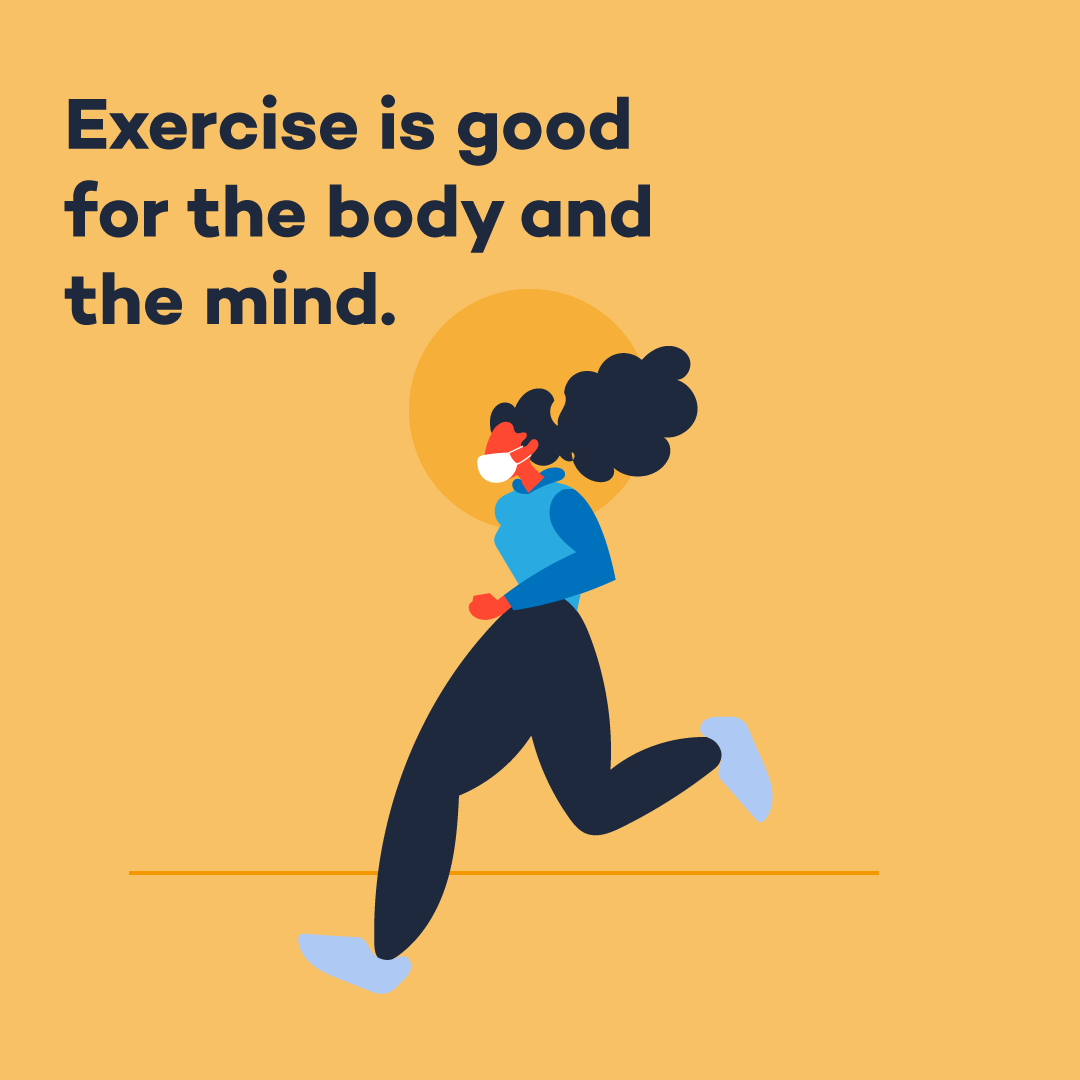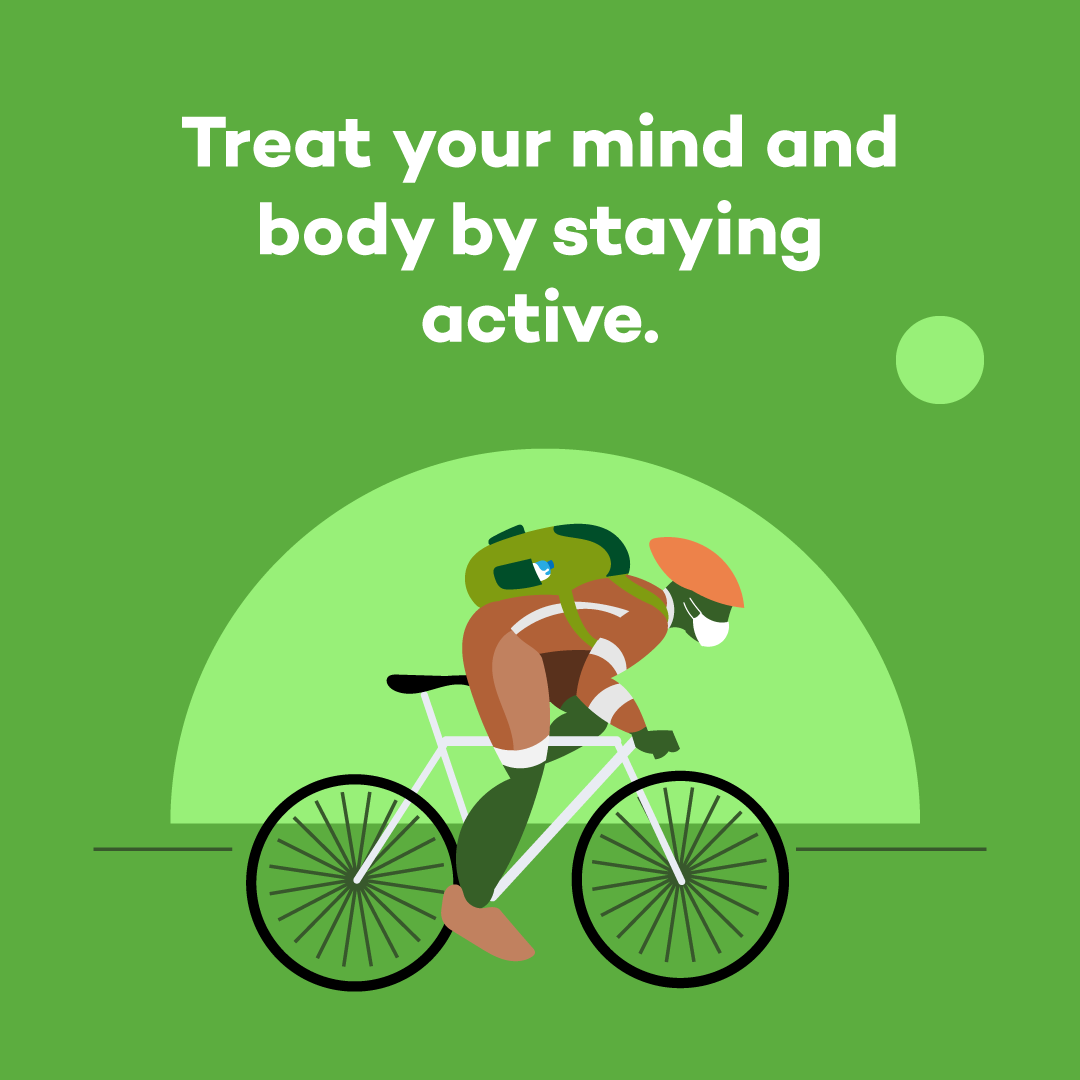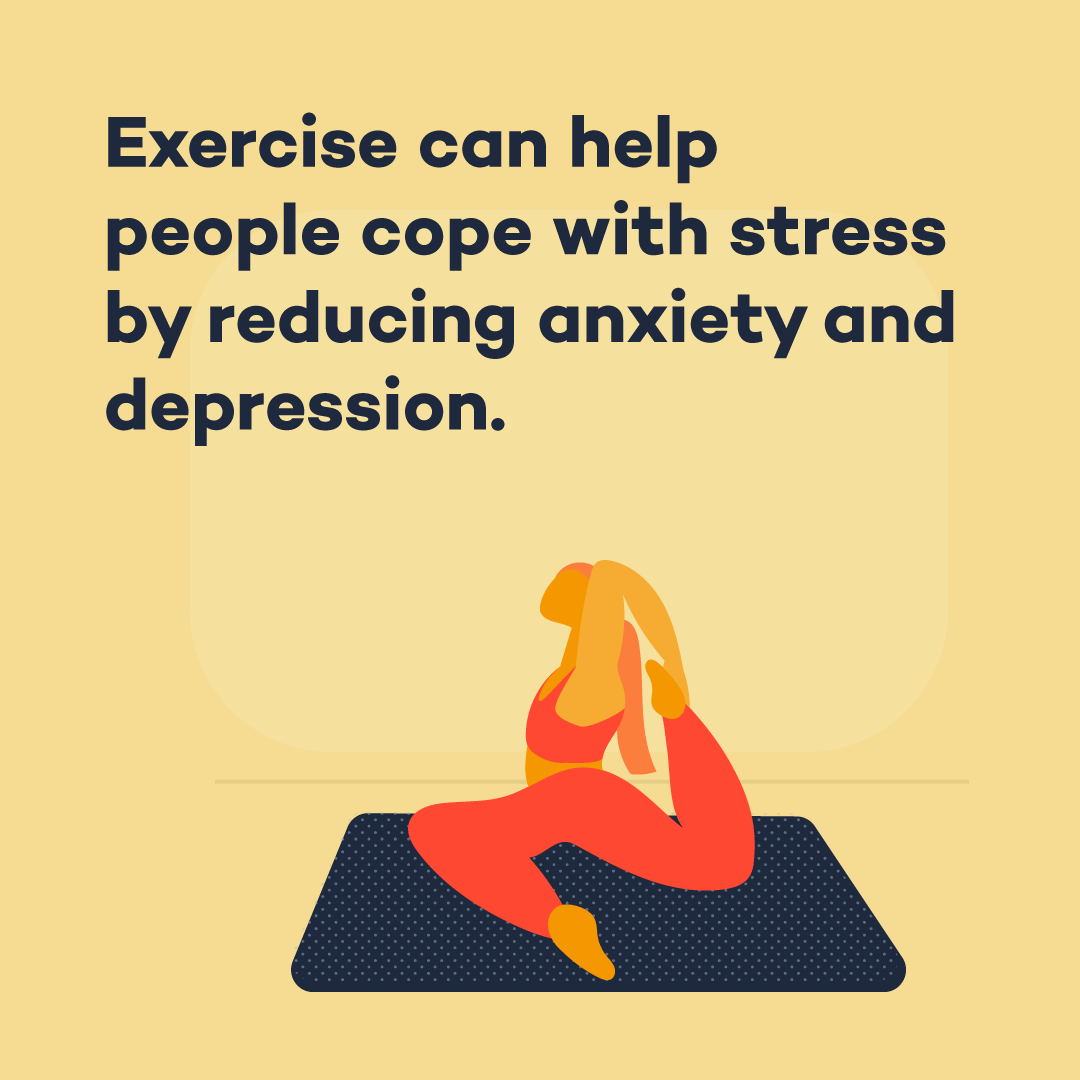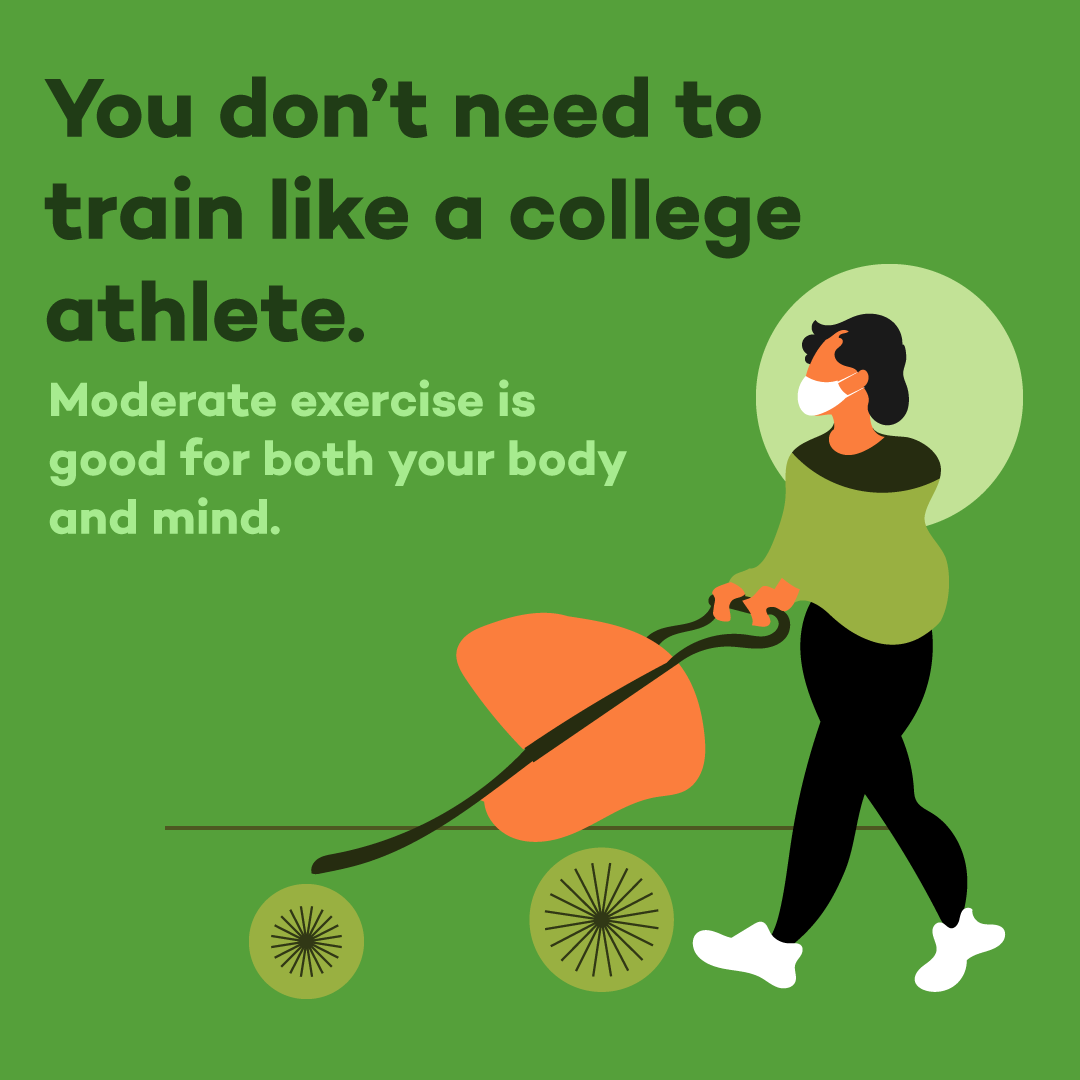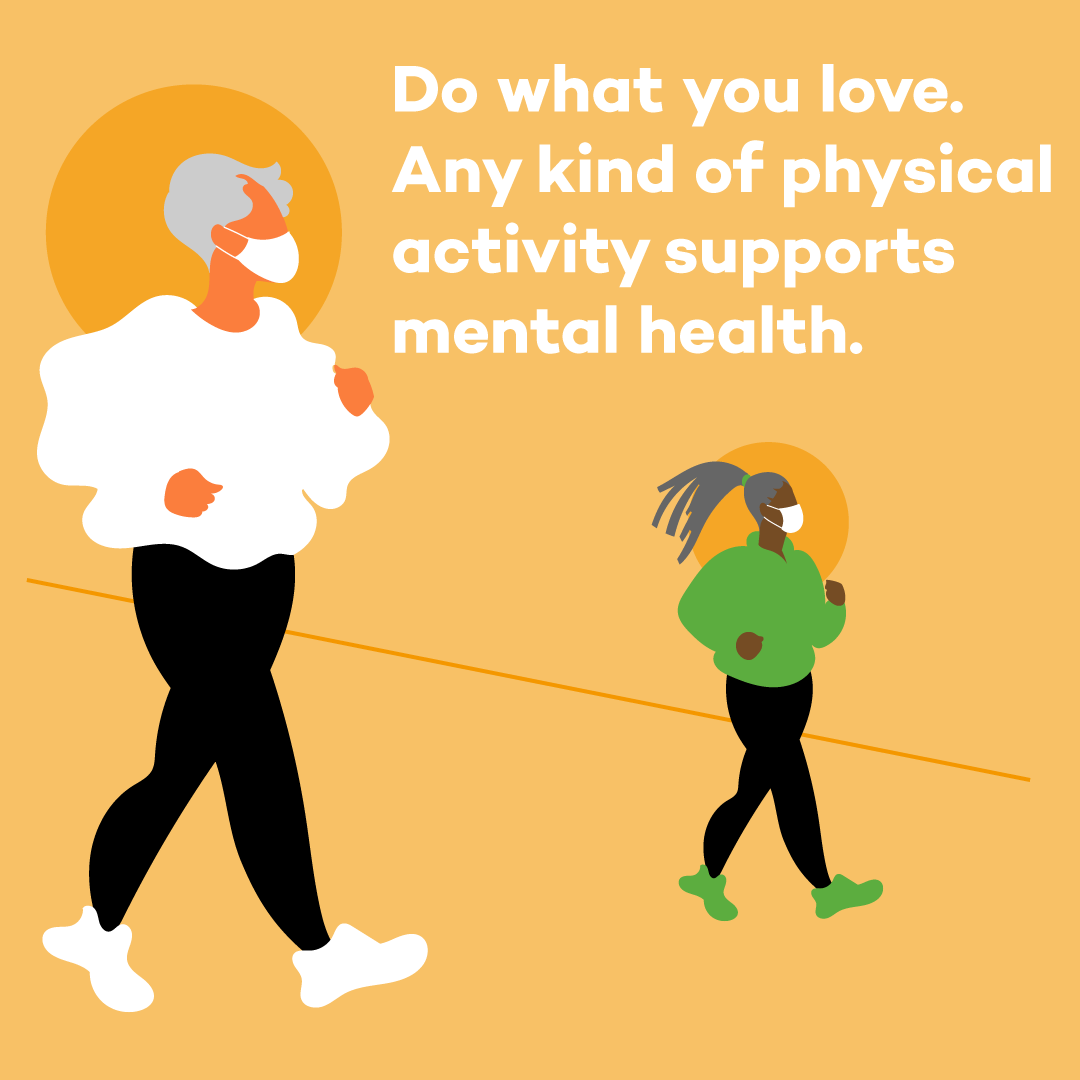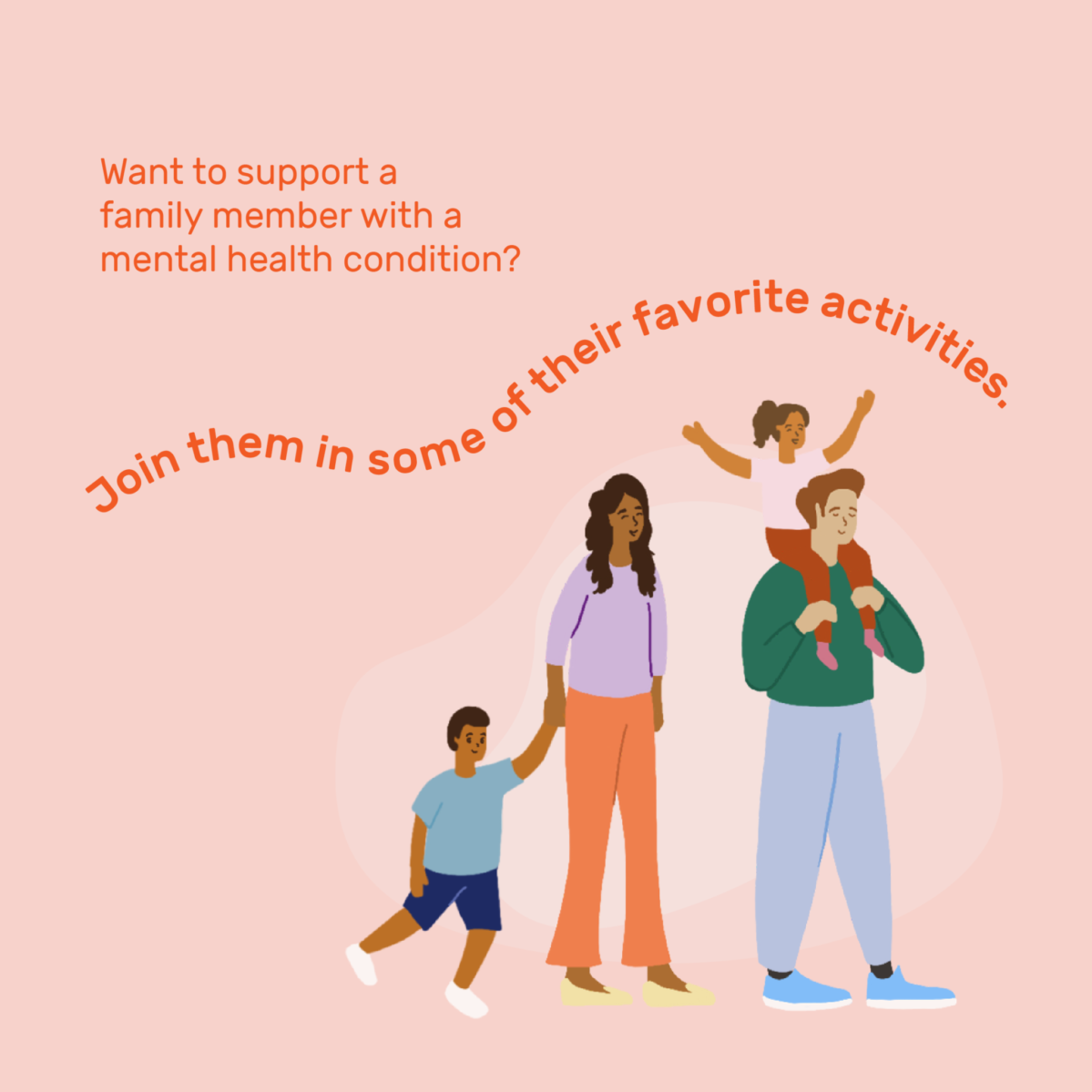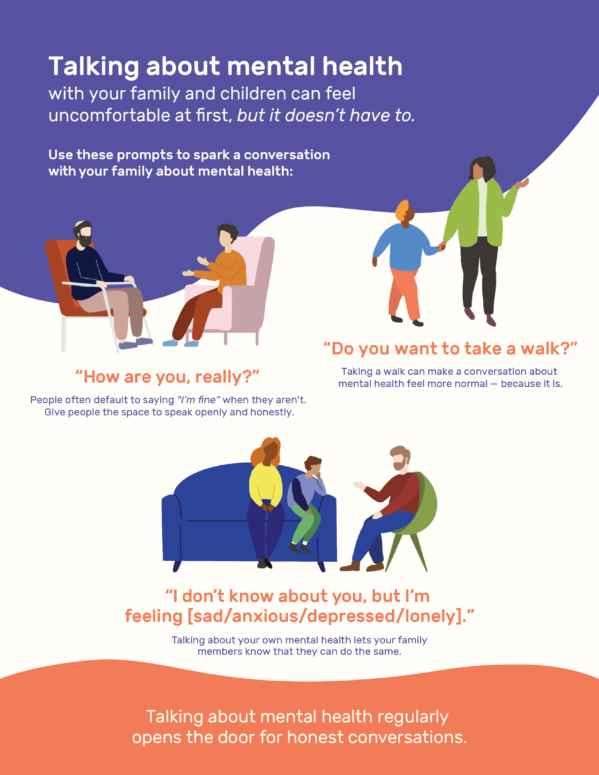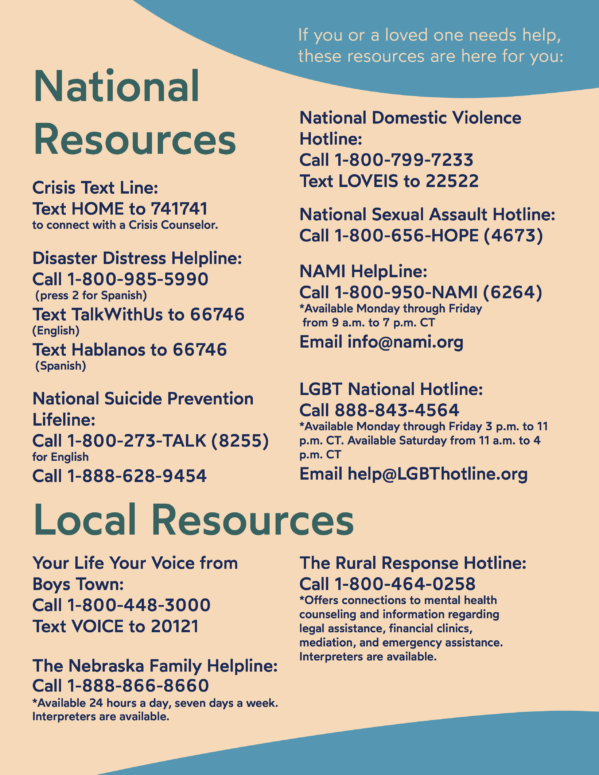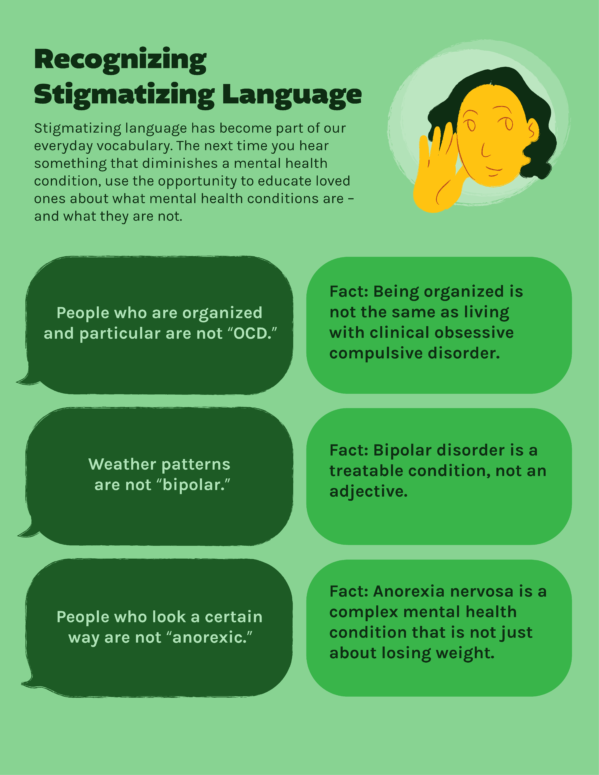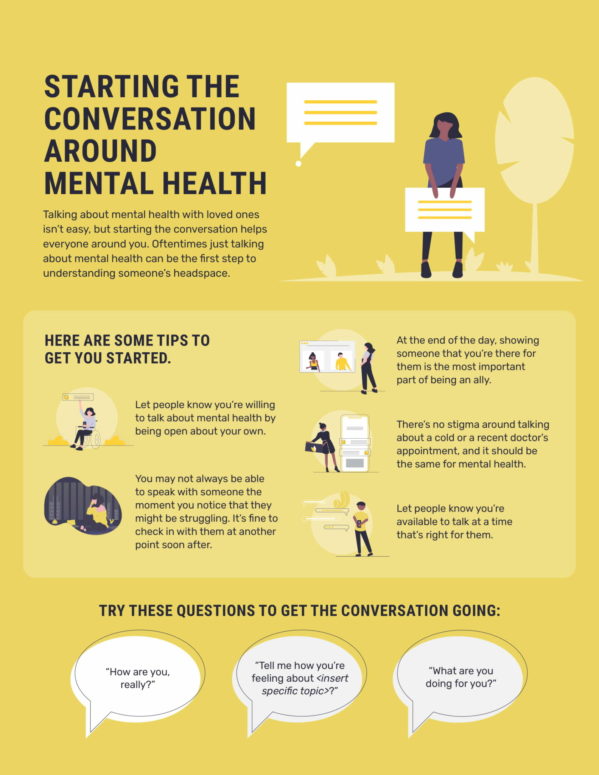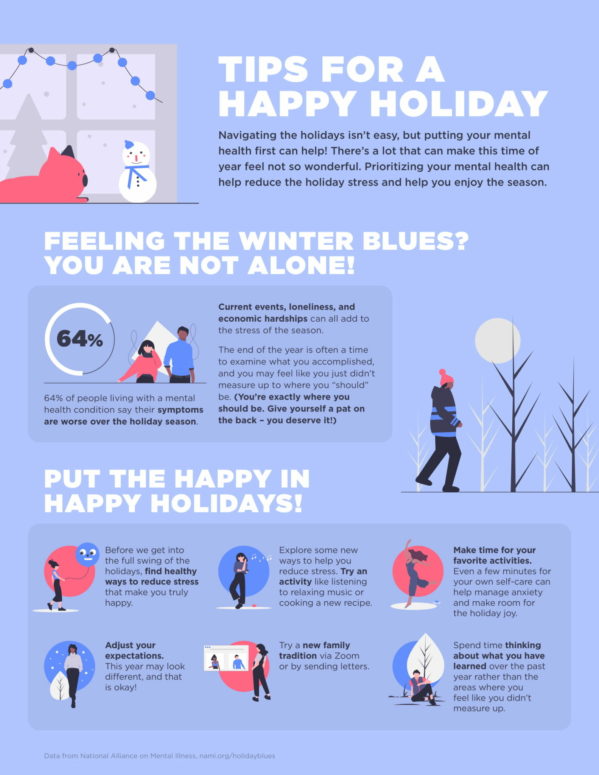Mental Health Stigma-Fighting Resources
This library of social media assets is for organizations and individuals to use on social media platforms, websites, flyers, or emails. Our goal is to increase awareness of mental health and help reduce stigma.
Simply right click to download and share.
Resources are grouped by month based on the 2022/2023 calendar year.
Have suggestions for future content? Looking to add your organization’s logo to an image? Get in touch!
January
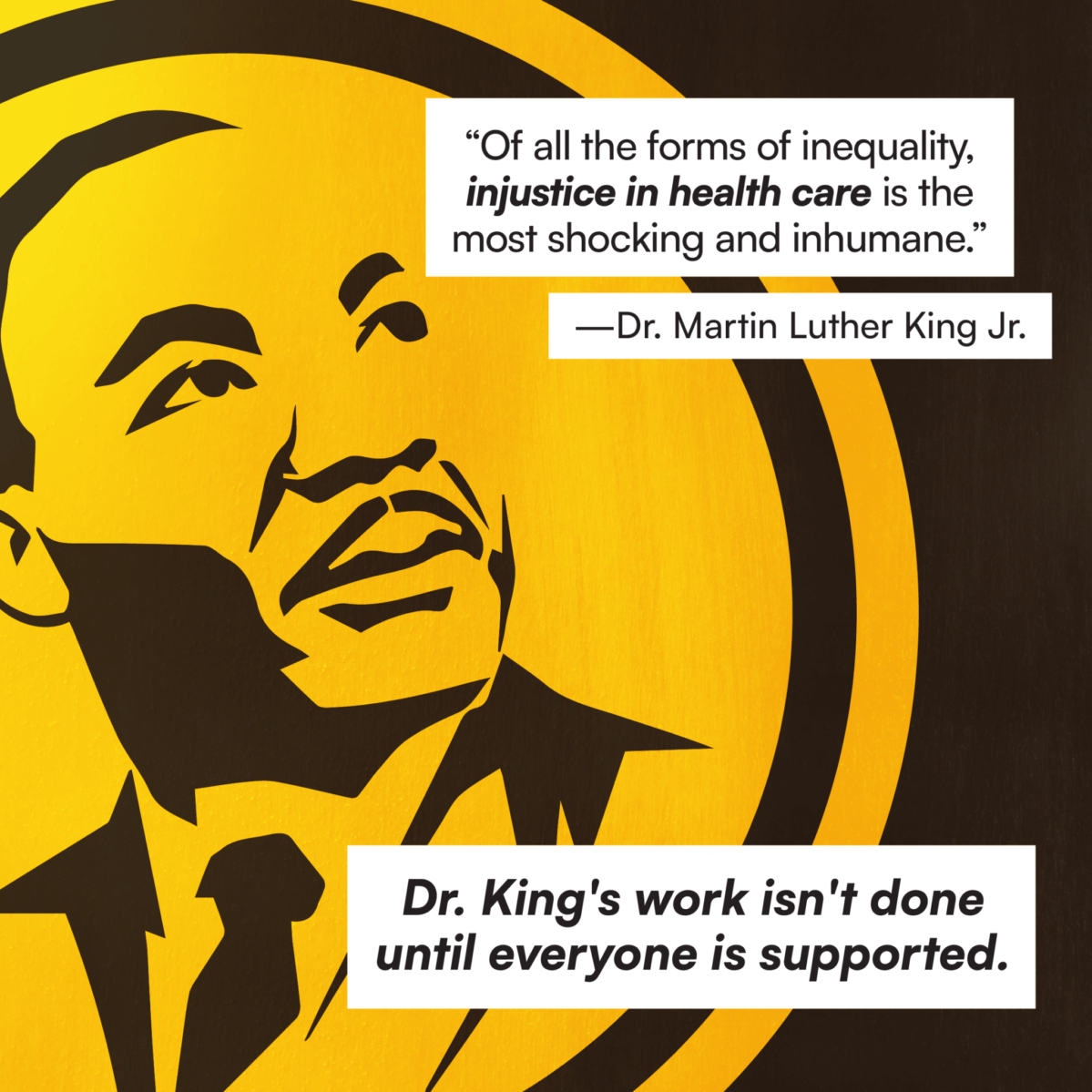
Third Monday of January (Jan. 16)
Today we honor the life and legacy of Dr. Martin Luther King Jr., who fought for civil rights and equality. Mental health is something that affects everyone but disproportionately affects Black communities. Black men and women are 20% more likely to experience a severe mental health condition in their lifetime, but they’re also less likely to receive treatment. Mental health stigma and racial discrimination can make it difficult to access treatment. Community support can help.
Optional additional language: For self-care resources visit:
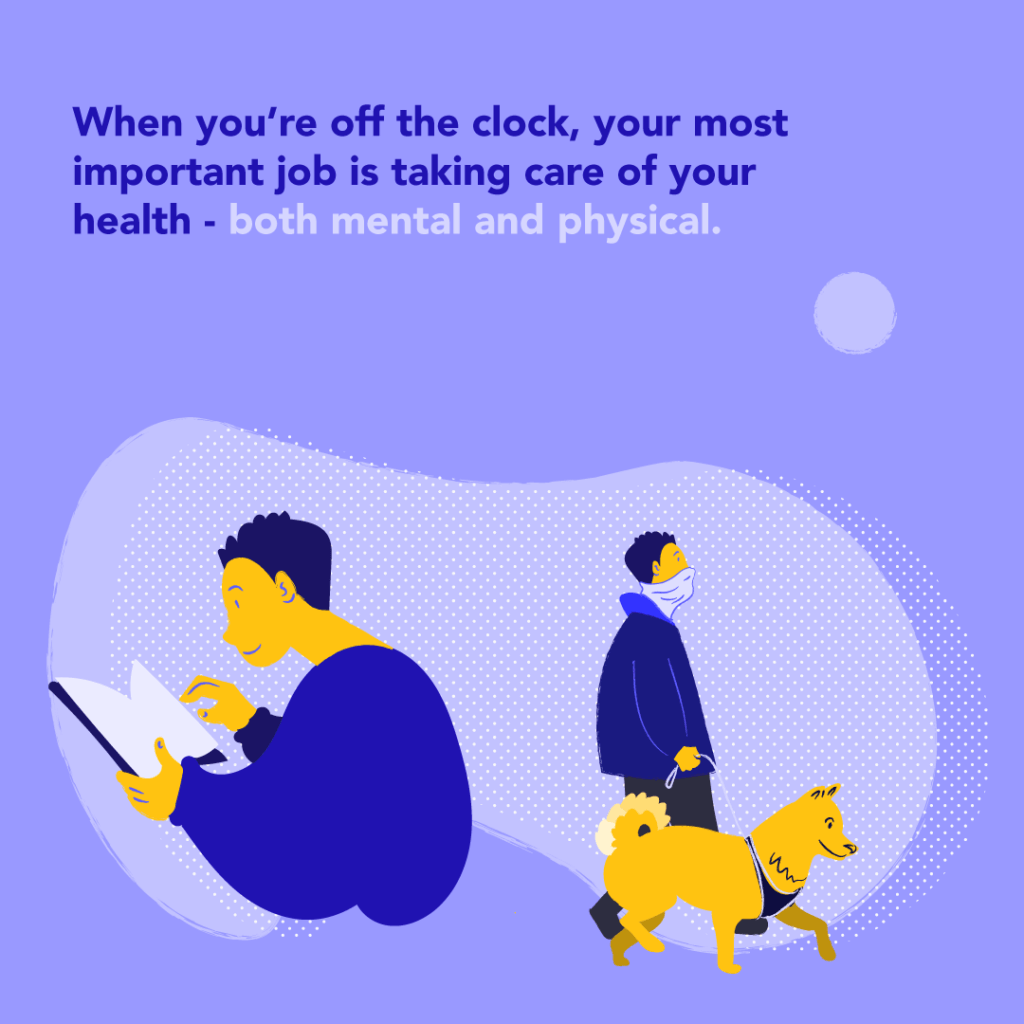
It’s important for us to rest. While this can look different for each of us, it is crucial to set work/life boundaries as resting improves our mental health. Focus on taking care of yourself.
Optional additional language: For mental health resources in our community check out:
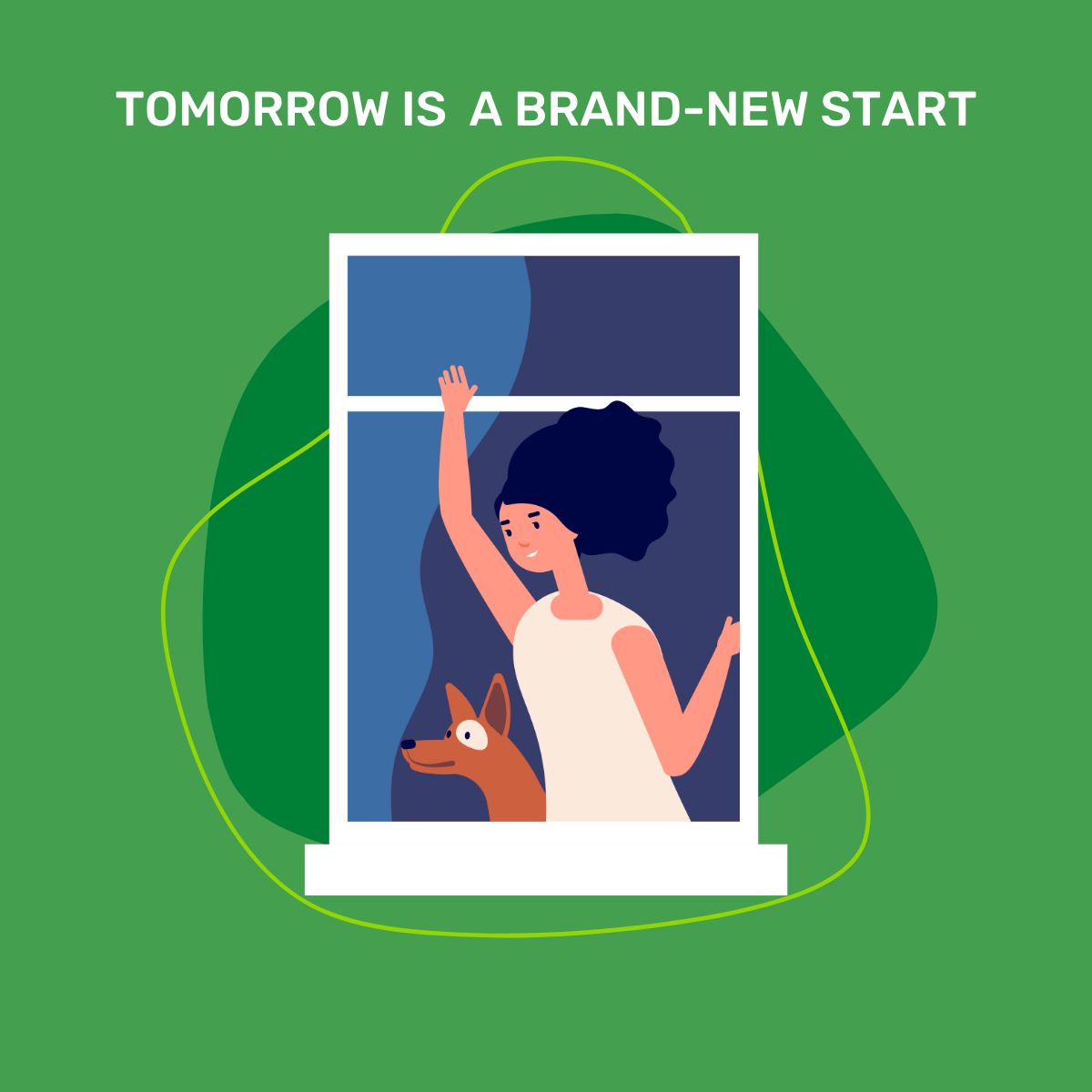
It takes 30-60 days to make a new habit stick or to break an old one. Start with small goals and remember to strive for progress not perfection. January can feel like a sprint after some time away from your regular routine. Be mindful and stay present.
Optional additional language: For more self-care resources visit:
February
Black History Month is a time to honor the extraordinary contributions of Black thinkers, leaders, and doers. We can’t end the stigma around mental health without also working to end systemic racism.
Optional additional language: For mental health resources in our community check out:
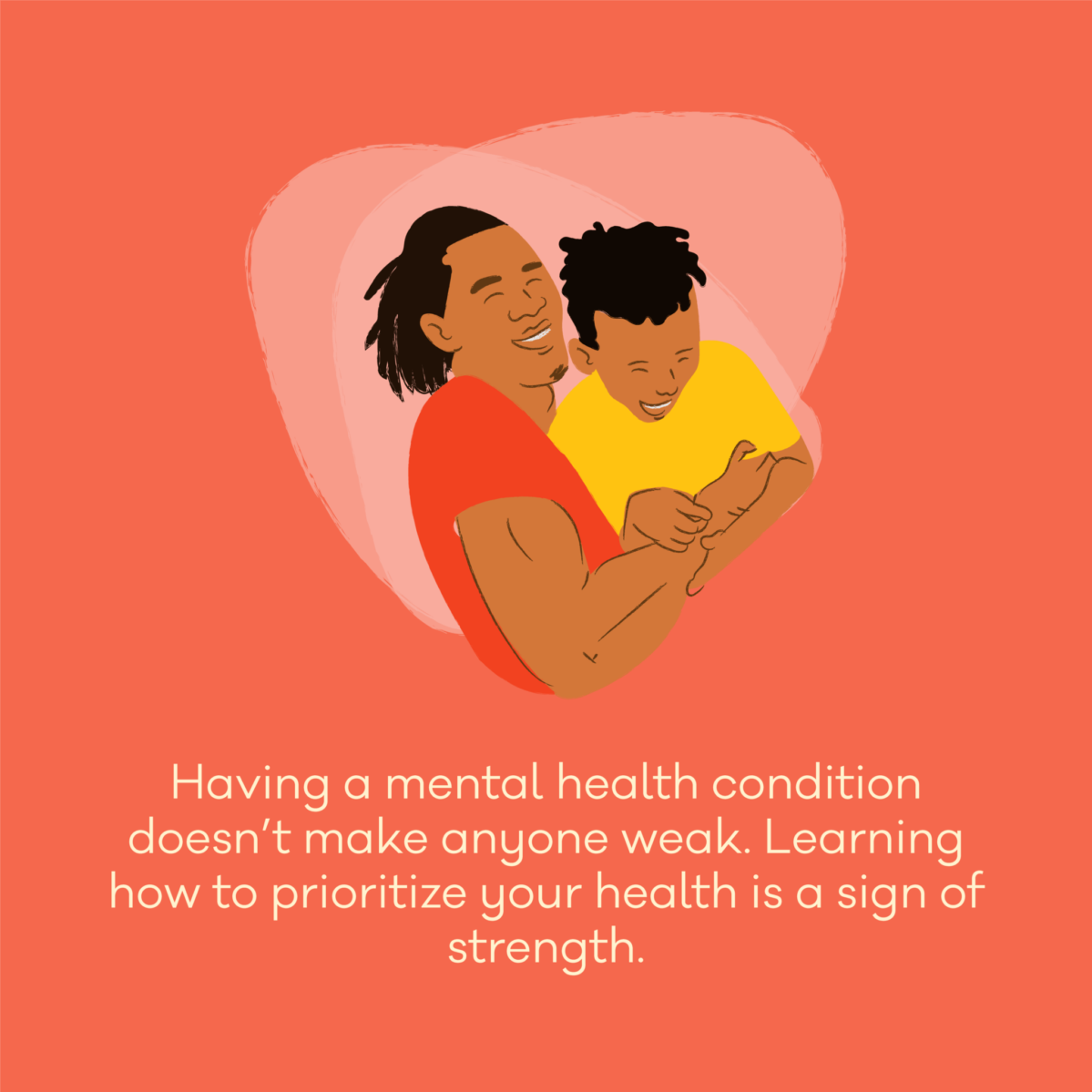
Black History Month is a time to celebrate the accomplishments and contributions made by Black leaders, activists, and changemakers. It is also a time to address the systemic racism that affects people’s lives – from the ability to access mental health services to physical safety. This month may only last 28 days, but the lessons and learnings should carry on all 365 days of the year.
Optional additional language: For mental health resources in our community check out:
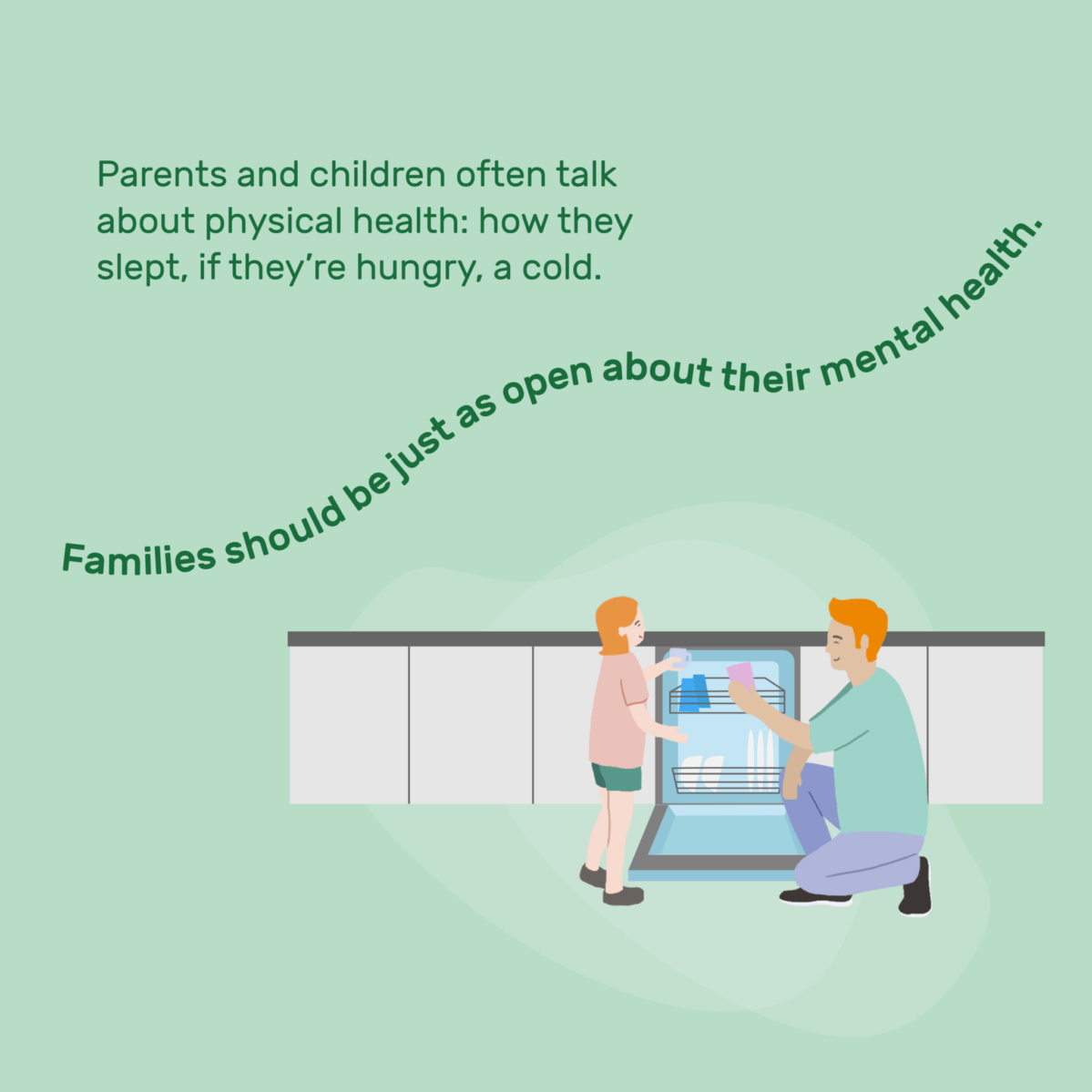
Breaking the stigma around mental health can start at home!
Here are a few tips for you to use when discussing mental health with your child:
- Communicate in a straightforward manner.
- Speak at a level that is appropriate for their age and development level.
- Discuss the topic when your child feels safe and comfortable.
- Watch for reactions during the discussion, and slow down or back up if your child seems confused or upset.
- Listen openly, and let your child tell you about their feelings and worries.
For mental health resources in our community check out: https://thewellbeingpartners.org/resources
March
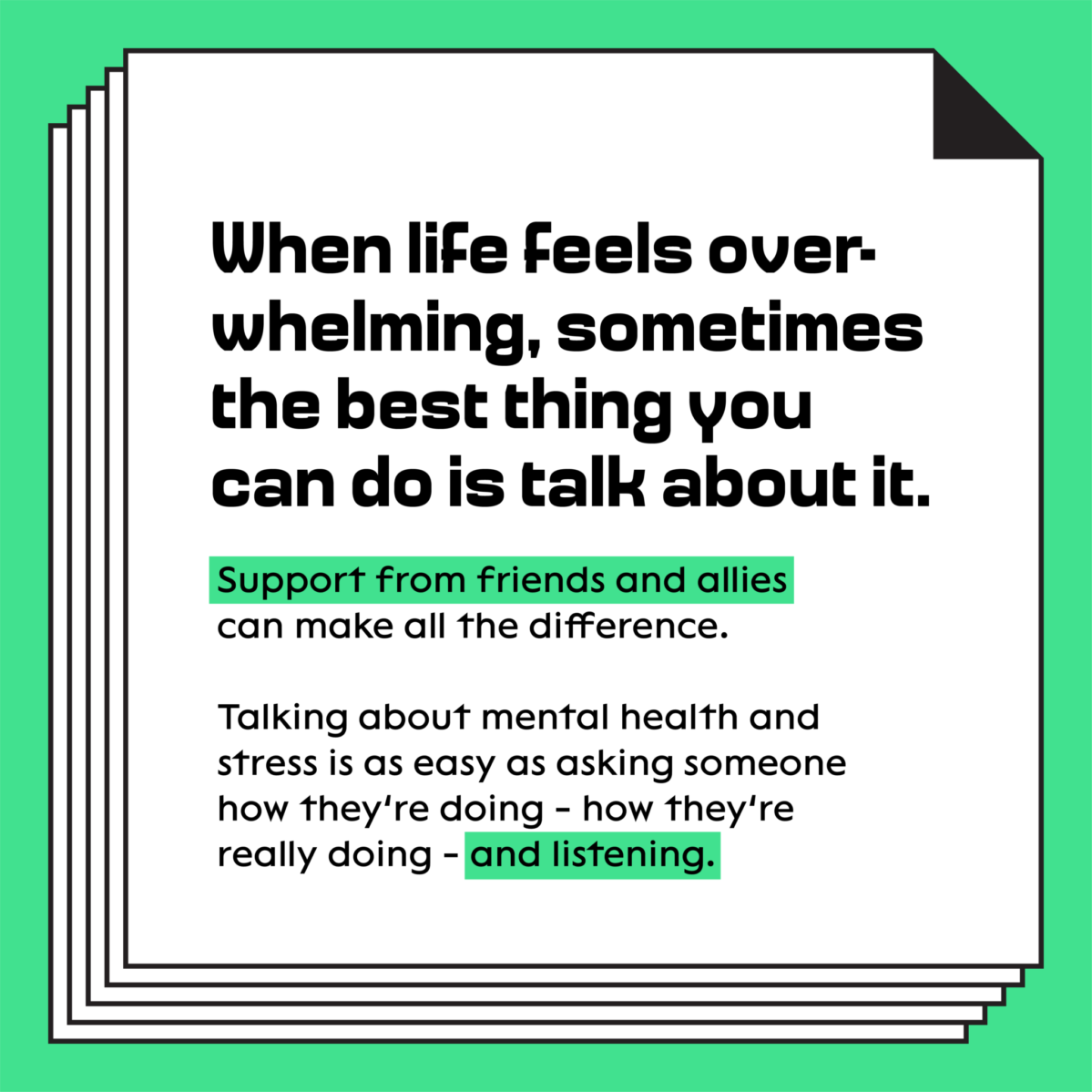
Talking about mental health with your family and children can feel uncomfortable at first, but it doesn’t have to. People often default to saying “I’m fine” when they may not be. Give people the space to speak openly and honestly. Talking about mental health regularly opens the door for honest conversations. For mental health resources in our community check out:

Mental health is just as important as physical health and contributes to your overall well-being. Taking care of your mental health and making it a priority is important and can be fun. Here are some tips for you to try at home:
- Get closer to nature! Go for walks, and focus your senses on your surroundings.
- Learn to understand and manage your feelings. Give your feelings attention without judging them and without putting yourself down. Name what you are feeling and talk kindly to yourself.
- Talk to someone you trust for support. Talking things out can be helpful and may help provide a new perspective.
- Get more from your sleep. Develop a bedtime routine that you find relaxing and try to go to sleep and wake up at around the same time everyday. Sleep is replenishing, and your mind and body need rest!
For more self-care resources check out: https://thewellbeingpartners.org/resources

Both mental health and substance use conditions affect people from all walks of life and all age groups. While these conditions are common and often serious, they are treatable and many people do recover. According to Substance Abuse and Mental Health Services Administration (SAMHSA), if these two conditions coexist they are referred to as co-occurring. Remember you are not alone, and there is support available!
Optional additional language: To find mental health and substance use disorder resources in our community check out:
April
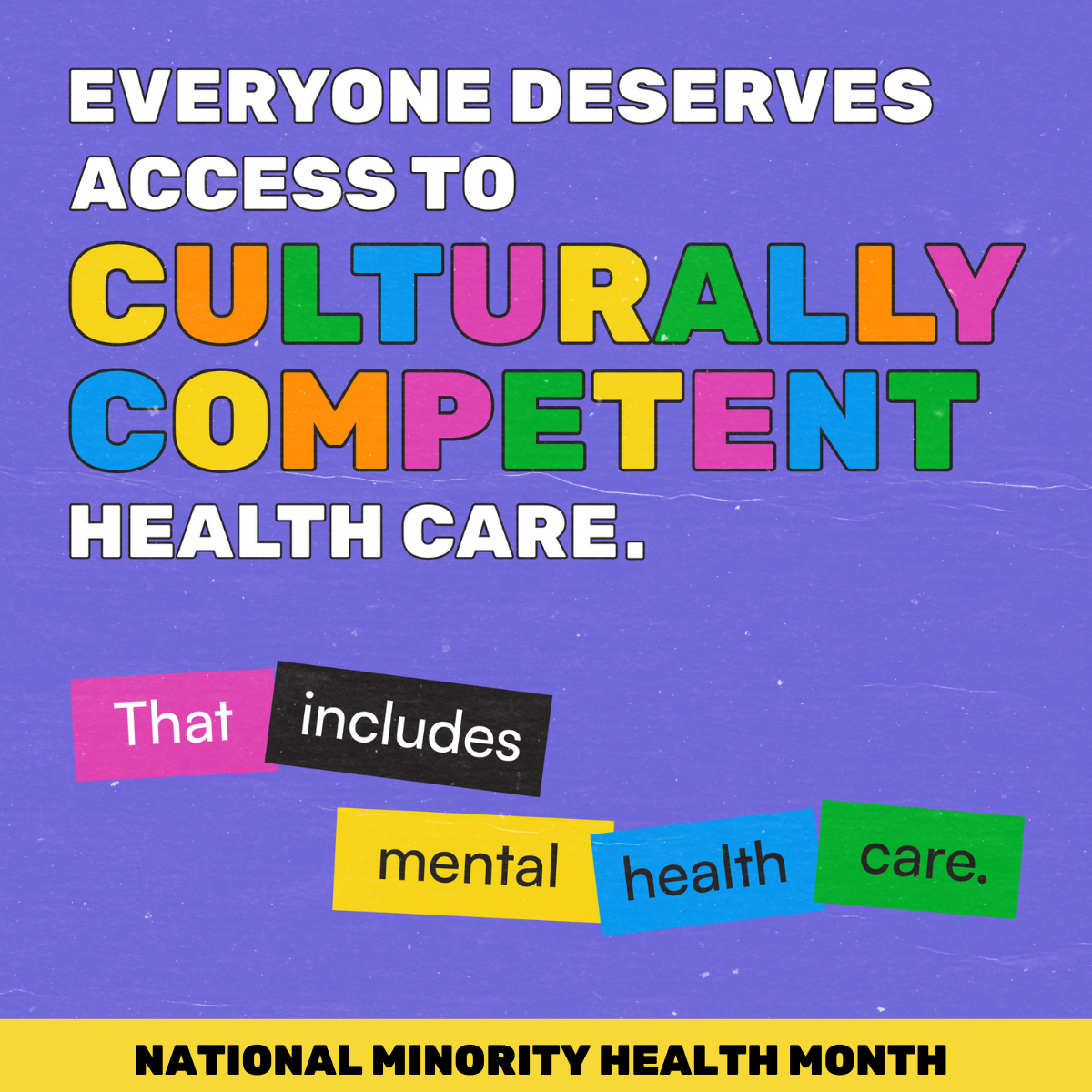
April is National Minority Health Month, a time to raise awareness about health disparities that continue to affect people from racial and ethnic minority groups. People deserve culturally competent and quality mental and physical healthcare regardless of race, ethnicity, age, and gender.
Optional additional language: To find mental health resources in our community check out:
Sometimes life can feel a little overwhelming. It’s okay for you to take time out of your day and take care of yourself! Taking this time for yourself will help you be a better friend, family member, and employer. Take care of you!
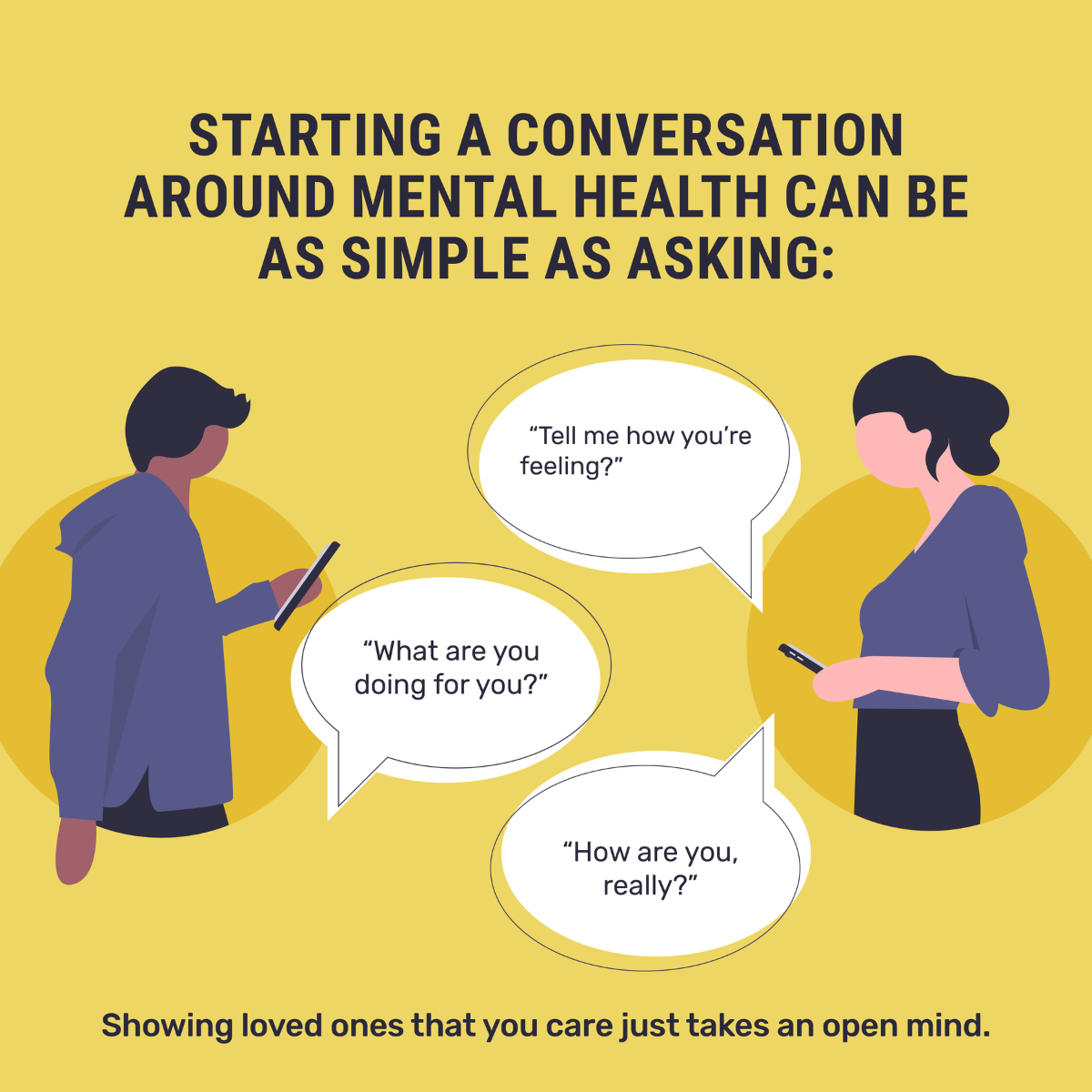
Talking about mental health isn’t easy, but starting the conversation helps everyone. Often just talking about it can be the first step to understanding someone’s headspace. As an ally, you can let people know that you’re willing to talk about mental health by being open about your own experience or by lending a listening ear when the time is right for them.
Optional additional language: if you are ready to share your story and help decrease the stigma around mental health, visit:
May
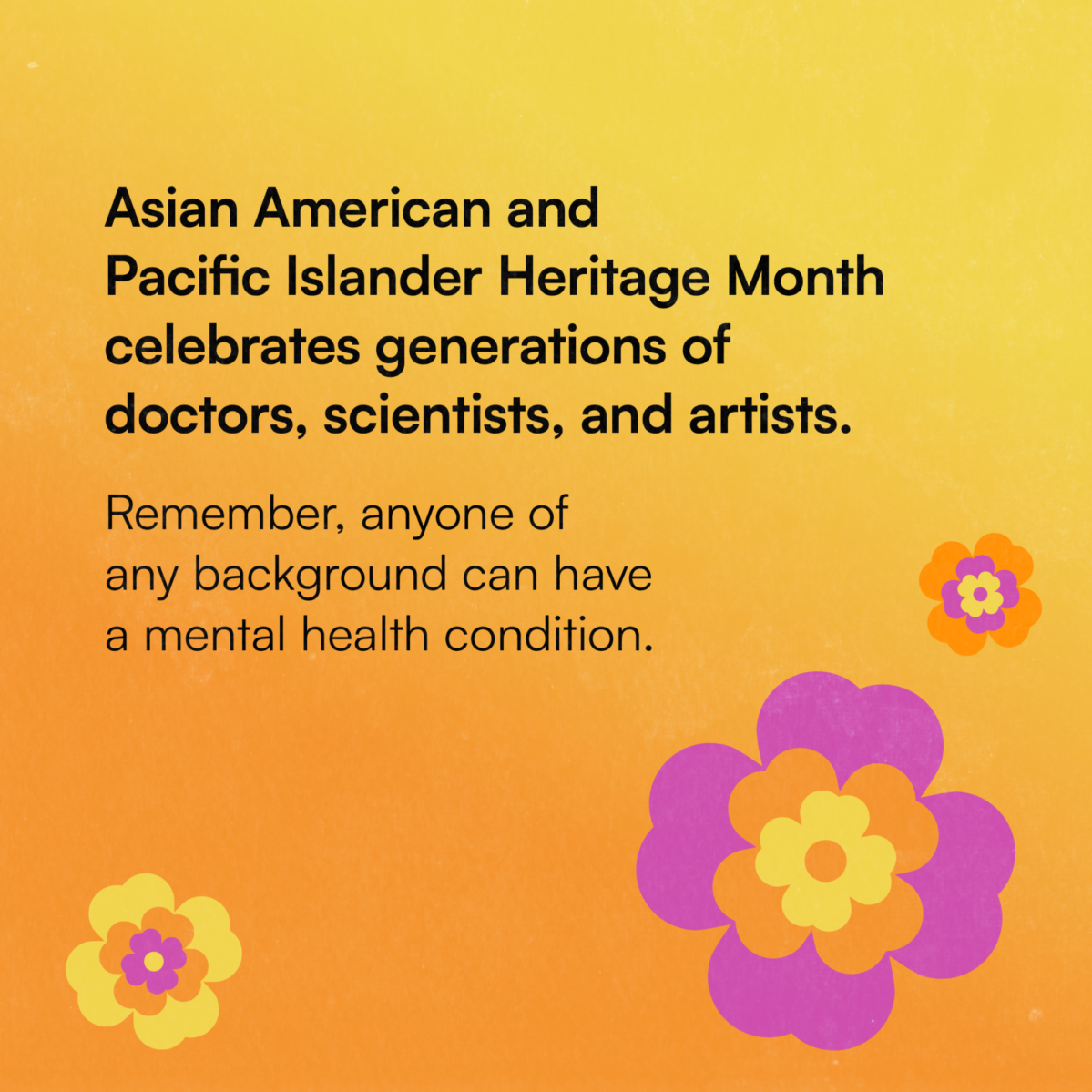
May is Asian American and Pacific Islander Heritage Month (AAPI month). This commemorative month recognizes the historical and cultural contributions of AAPI individuals and groups to American culture and society. It’s essential we highlight and celebrate these contributions, and it’s also important to note that many individuals in the AAPI community face discrimination and stigma. Mental Health America notes that AAPI adults are three times less likely than their white counterparts to seek mental health services, and AAPI adults have historically had challenges accessing healthcare and insurance. We need to address these barriers in order to ensure everyone has access to the help they need.
Optional additional language: To find mental health resources in our community check out:
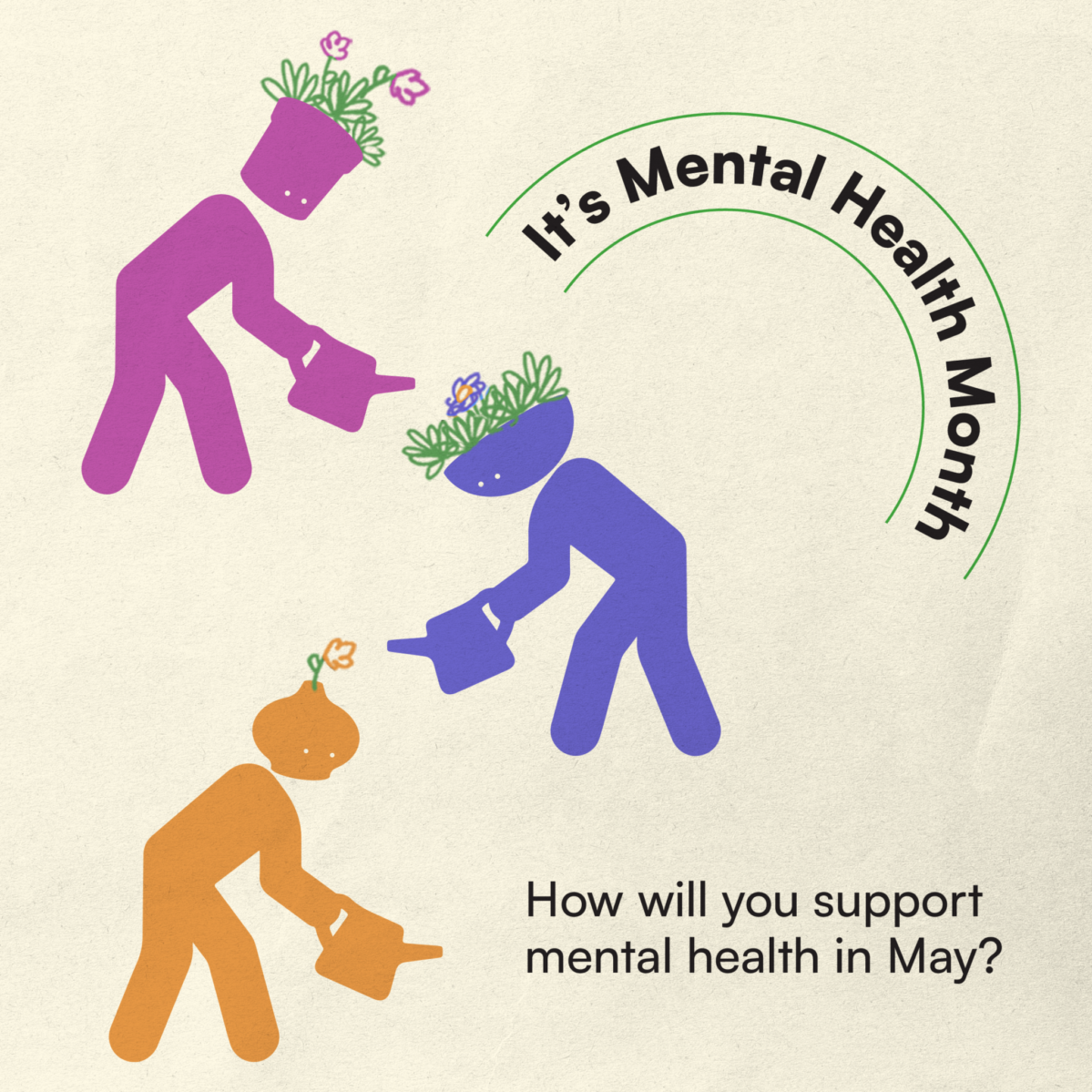
May is Mental Health Awareness Month! It’s a time to raise awareness around mental health and individuals living with mental health conditions. It’s also a time to openly and honestly discuss mental health in order to reduce the stigma that many people in our community experience.
Optional additional language: if you are ready to share your story and help decrease the stigma around mental health, visit:
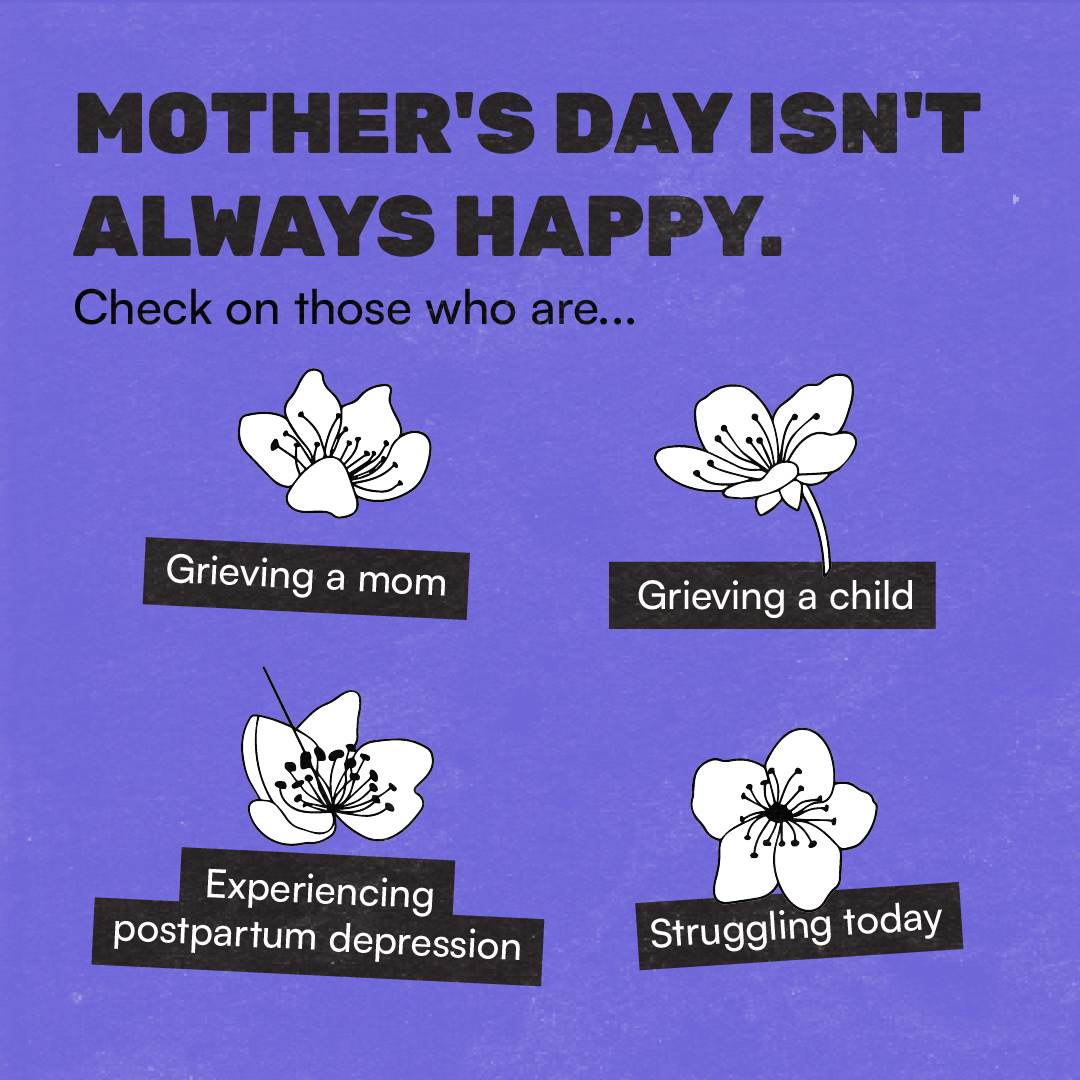
May 14: For many people, Mother’s Day is a reminder of loss and can be hard to get through, especially with reminders on social media. Reaching out to someone who may be struggling today will only take a few minutes, and it can make their day better.
Optional additional language: To find mental health resources in our community check out:
June

Happy Pride Month! Pride is all about celebrating people for who they are, and that attitude helps everyone. You don’t have to change yourself to be part of our community; you already are. Everyone deserves to know that they belong here.
Optional additional language: if you are ready to share your story and help decrease the stigma around mental health, visit:

Happy Father’s Day! Today we celebrate dads and father figures. Remember that this day can also be hard for many people. Reaching out to someone in your life who may be struggling today will only take a few minutes, and it can make their day better.
Optional additional language: To find mental health resources in our community check out:

June 19: June 19th marks a historically important event in the U.S. Known as Juneteenth, it’s considered by many to be the country’s second Independence Day. Although we have come a long way, there is still work to do as racism and injustice persist. According to Mental Health America, Black individuals are offered medication or therapy at lower rates than the general population. It is important for us all to continue to push for change in order to ensure that everyone has access to the quality healthcare they deserve.
July
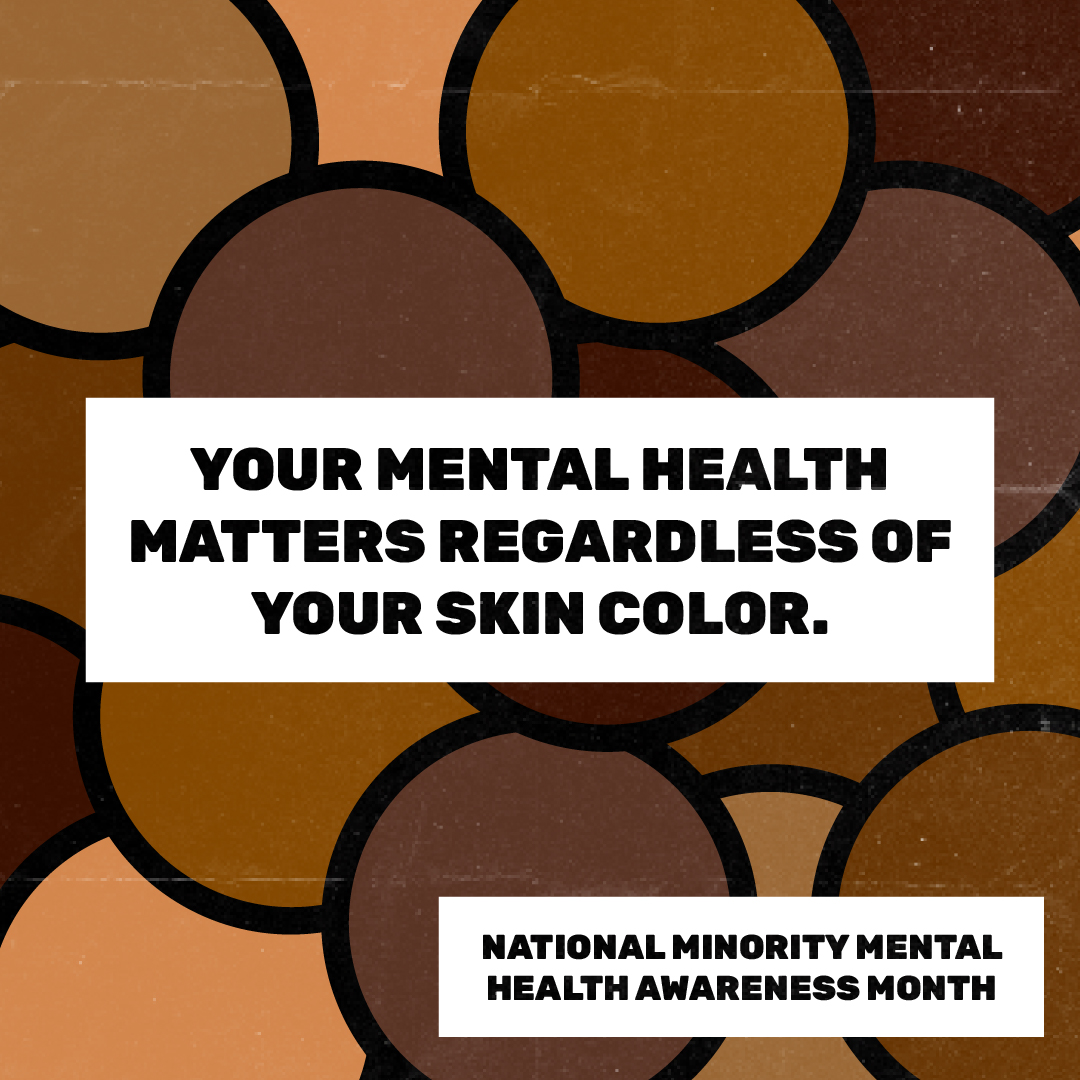
Representation matters. People need to see themselves and their experiences reflected in the world around them—including and especially when it comes to mental health care.
To find mental health resources in our community check out:
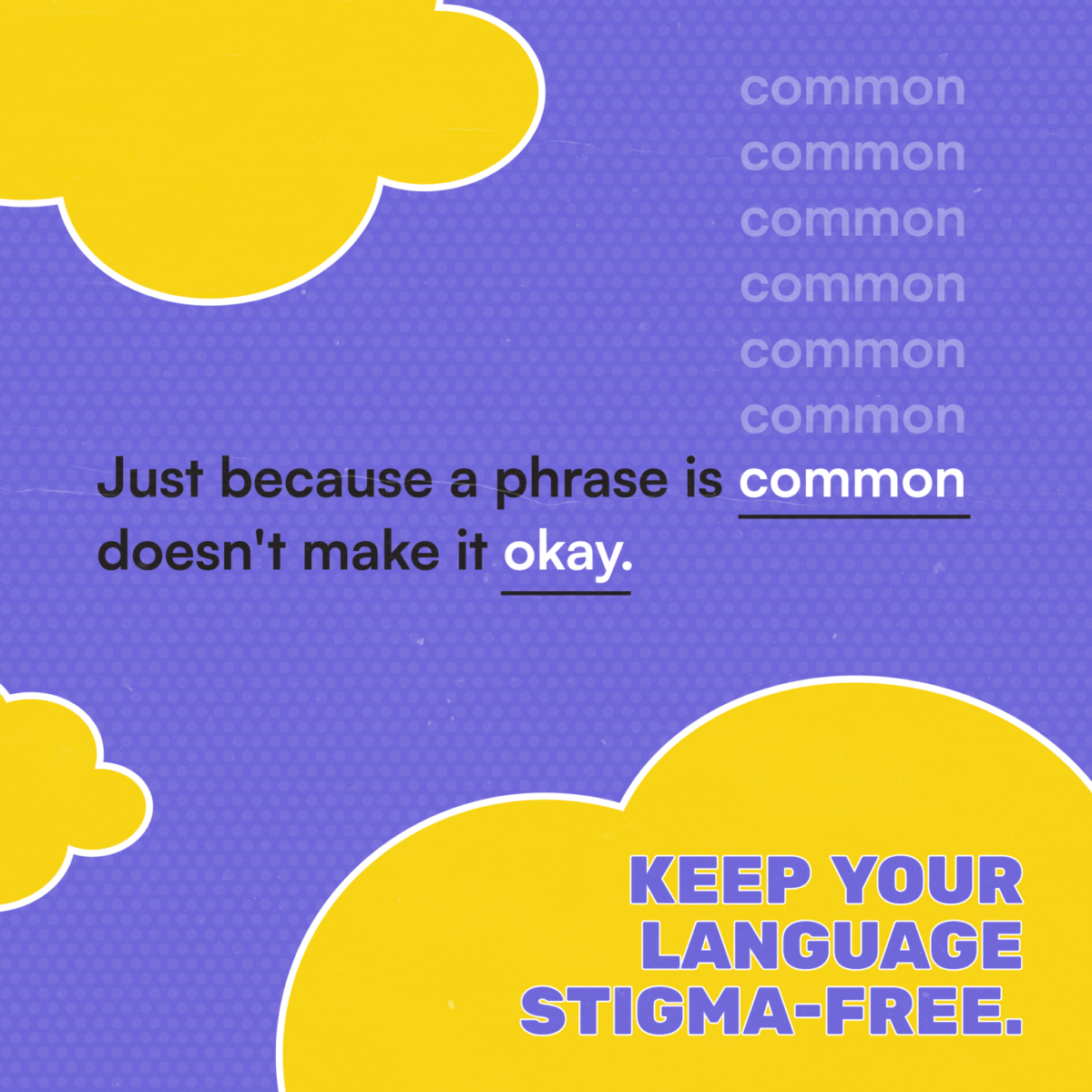
Contrary to the old adage, words actually can hurt as much as sticks and stones. When we use stigmatizing language, we spread the idea that people with mental health conditions are somehow different when they are not. Head over to whatmakeus.com/us to hear stories from people who are so much more than their mental health condition.
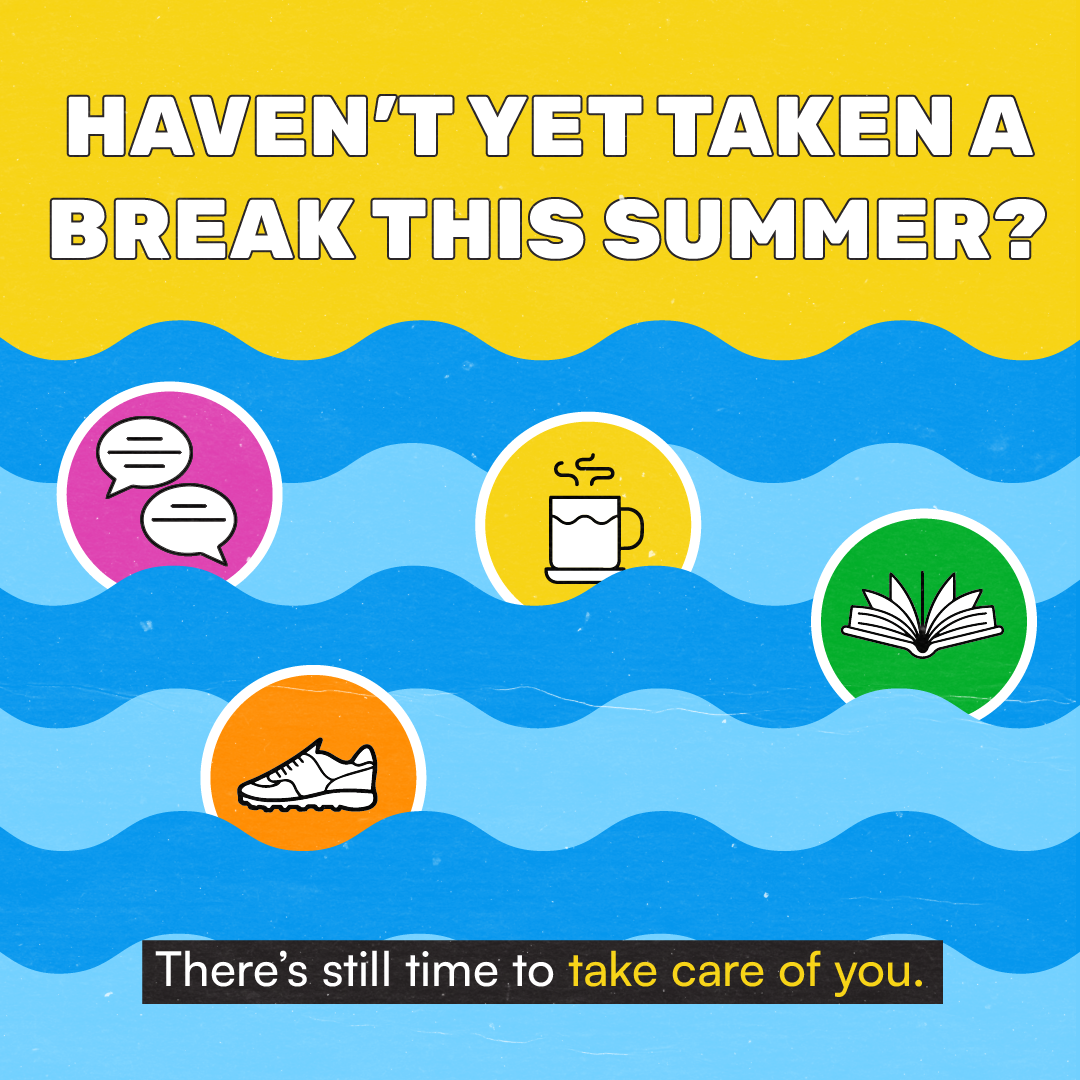
This summer, take some time away from your work and enjoy a break, whether it’s a staycation or a vacation away
from home. Rest is necessary to take care of your body and mind.
Optional additional language: For more self-care resources visit:
August
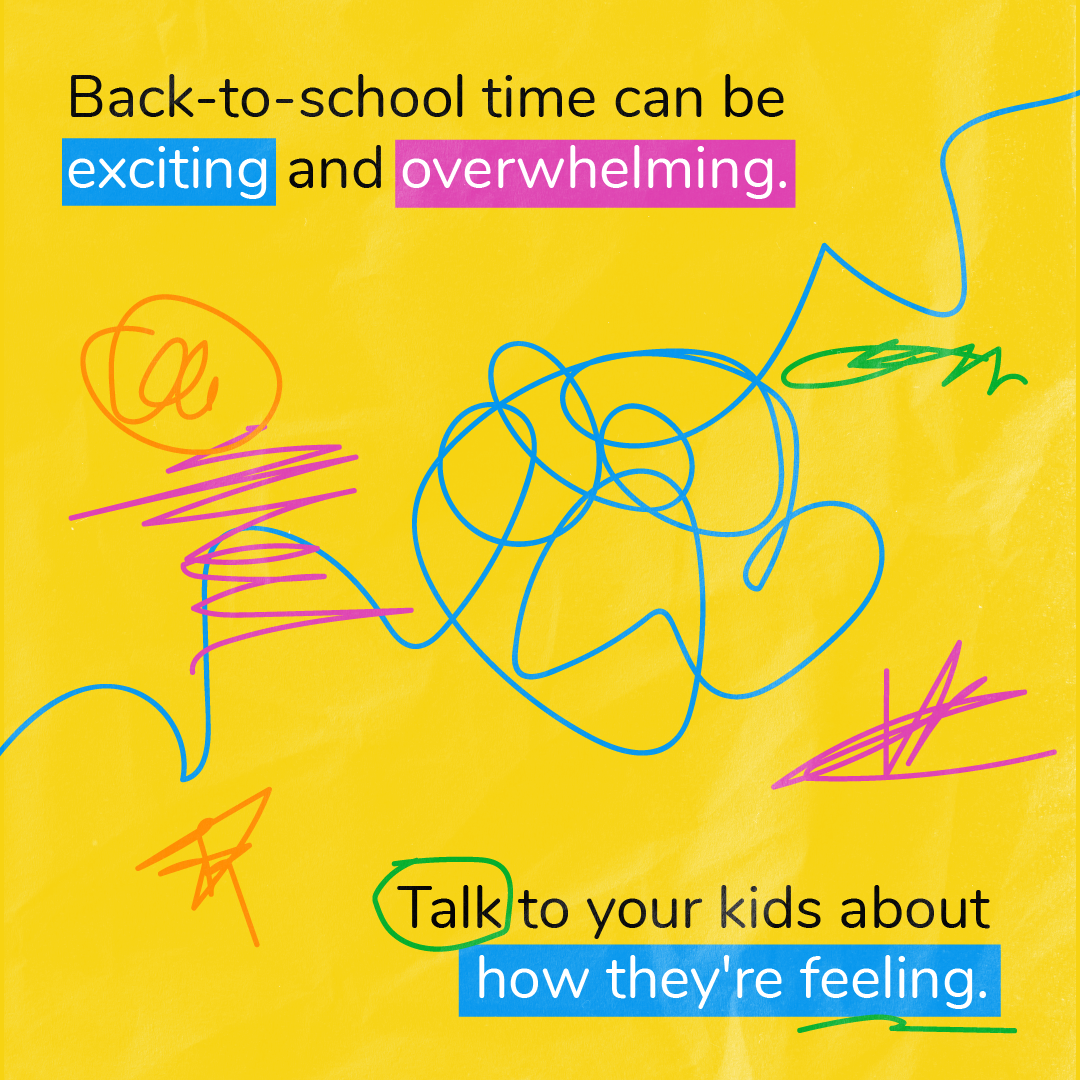
Adults aren’t the only ones who need support with their mental health. According to the National Survey of Children’s Health (NSCH), 1 in 6 youth experience a mental health condition. Youth deserve support, compassion, and resources. While it can be difficult, there is always hope. To find mental health resources in our community check out:
Burnout is a state of emotional, physical, and mental exhaustion caused by excessive and prolonged stress. While burnout can lead to reduced productivity, it more importantly can lead to feeling drained, helpless, and resentful. Burnout may impact both your work and home life. If you are experiencing burnout, you are not alone. Reach out for help. Check out resources available in our community: https://thewellbeingpartners.org/resources
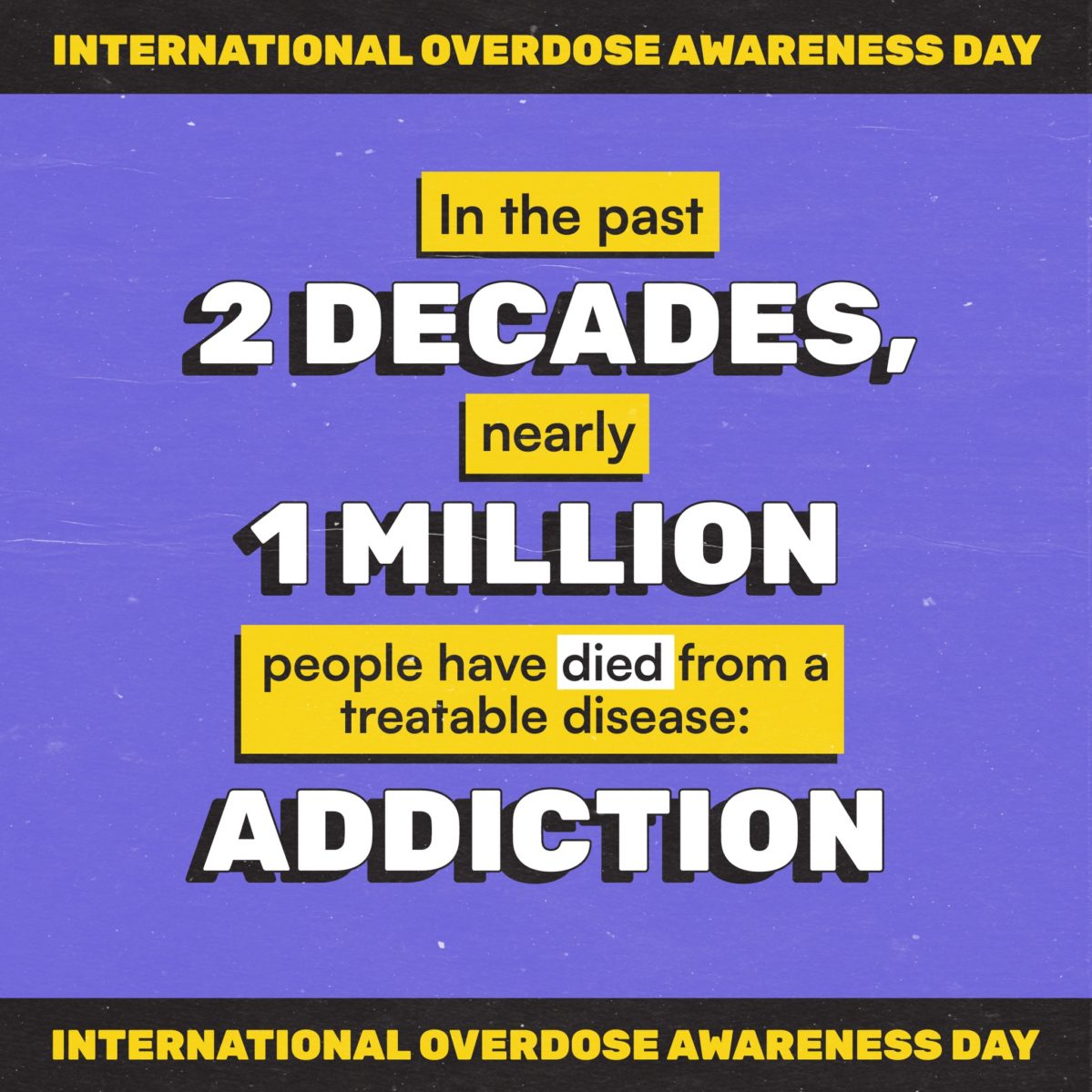
August 31: Substance use disorder is treatable, but because of the stigma around addiction (similar to the stigma around mental health), many people don’t get treatment. Treatable medical conditions shouldn’t go untreated because of stigma. Recovery is possible. Know you are never alone.
To find mental health and substance use disorder resources in our community check out:
September
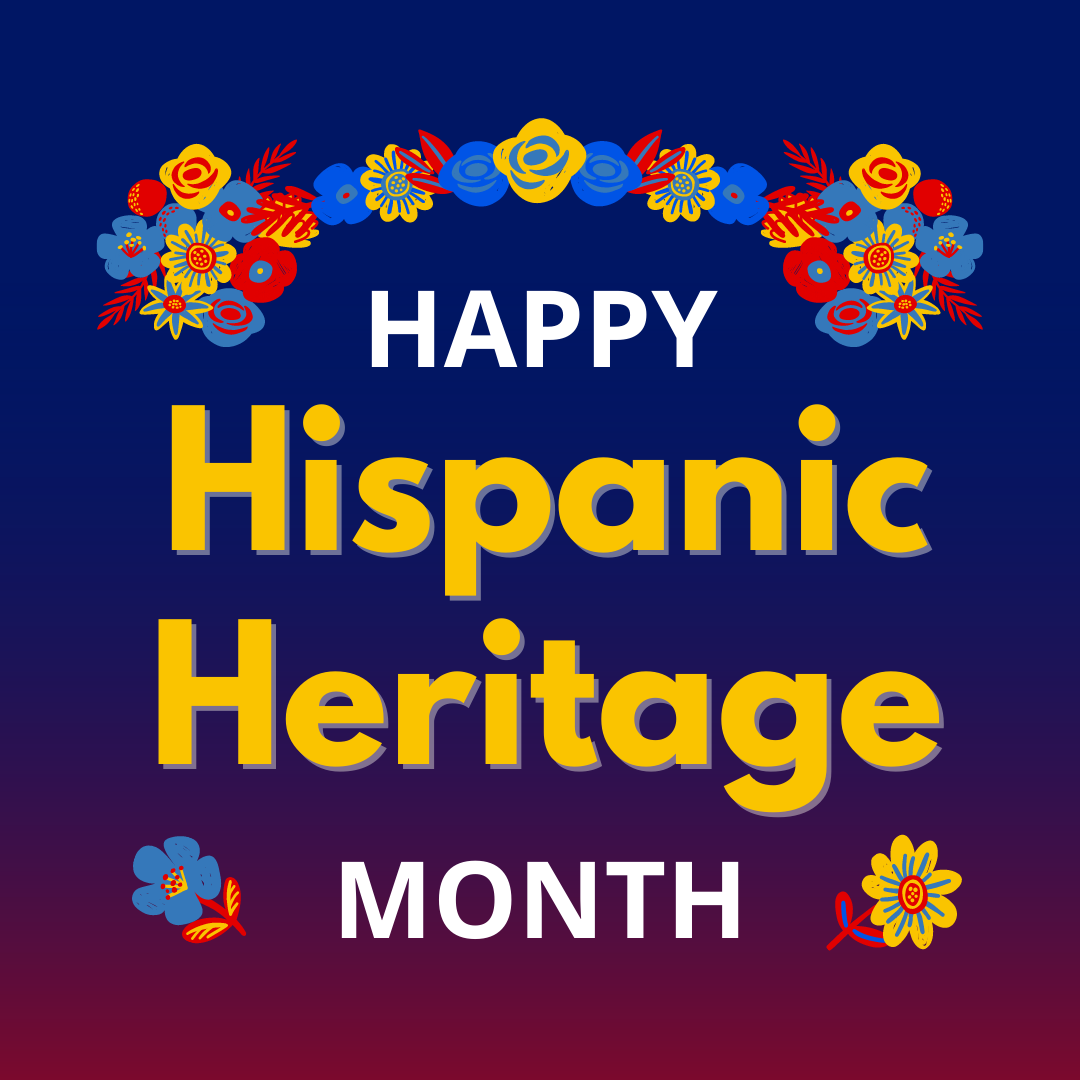
Happy National Hispanic Heritage Month! This month is about celebrating the contributions of both Hispanic and Latino Americans as we honor heritage rooted in all Latin American countries. According to Mental Health America, research shows that in the Latinx/Hispanic population, older adults and youth are more susceptible to mental distress relating to immigration and acculturation (assimilation to a different culture). It’s important to ensure that everyone has access to competent care that is culturally appropriate.
Want to make your workplace stigma-free…aka healthier and more productive?
Normalize talking about mental health like you would physical health. You don’t need to hide having a cold, just as no one should have to hide a mental health condition.
Check-in with your coworkers and ask how they are doing.
Make it easy for employees to take care of their mental health, whether that’s going to a therapy appointment or taking a break to walk outside.
For mental health resources in our community check out: https://thewellbeingpartners.org/resources
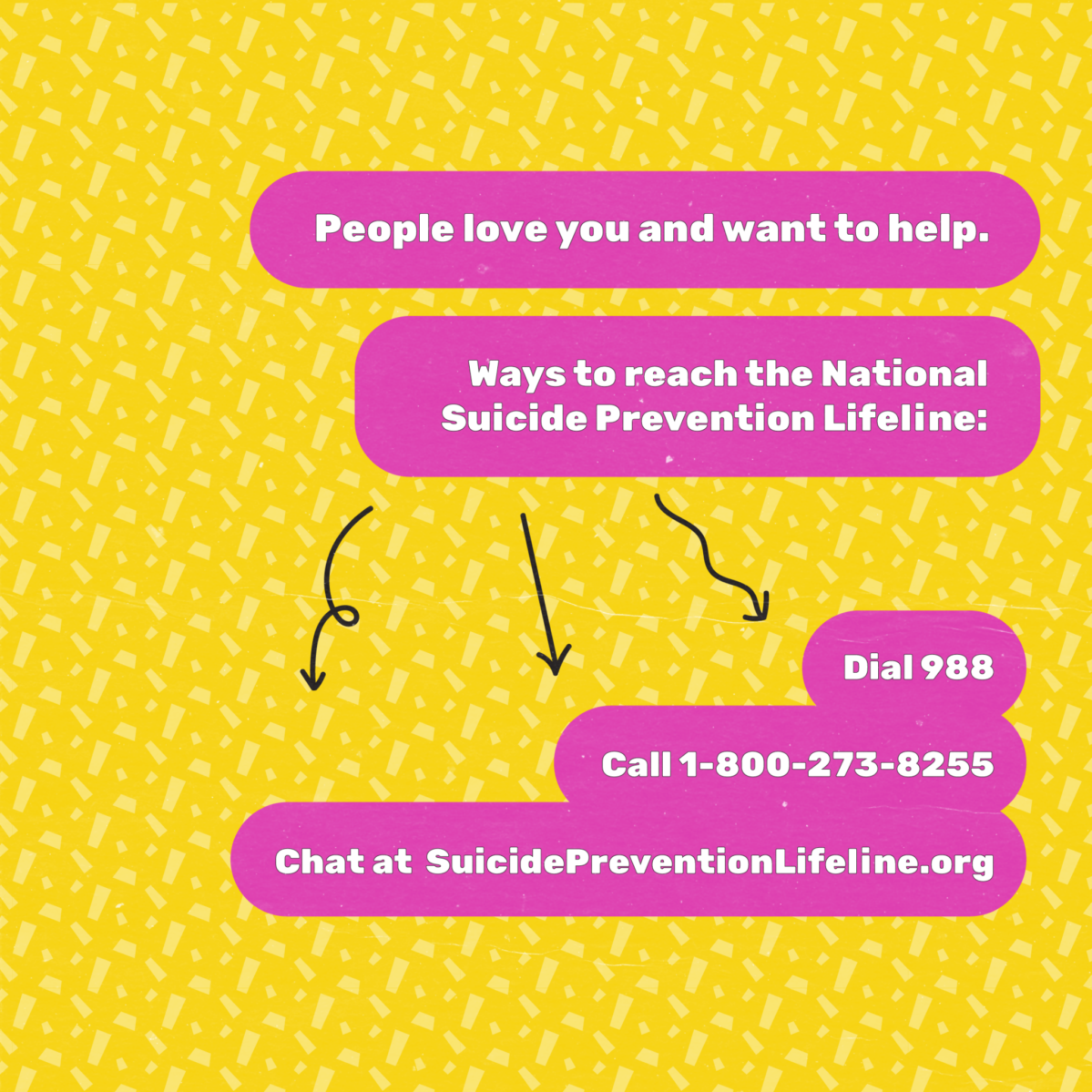
Suicide is preventable. According to the American Foundation for Suicide Prevention, if someone can get through a suicidal crisis, chances are they will not go on to die by suicide. You are not alone, and support is always available!
Optional additional language: For mental health resources in our community check out:
October
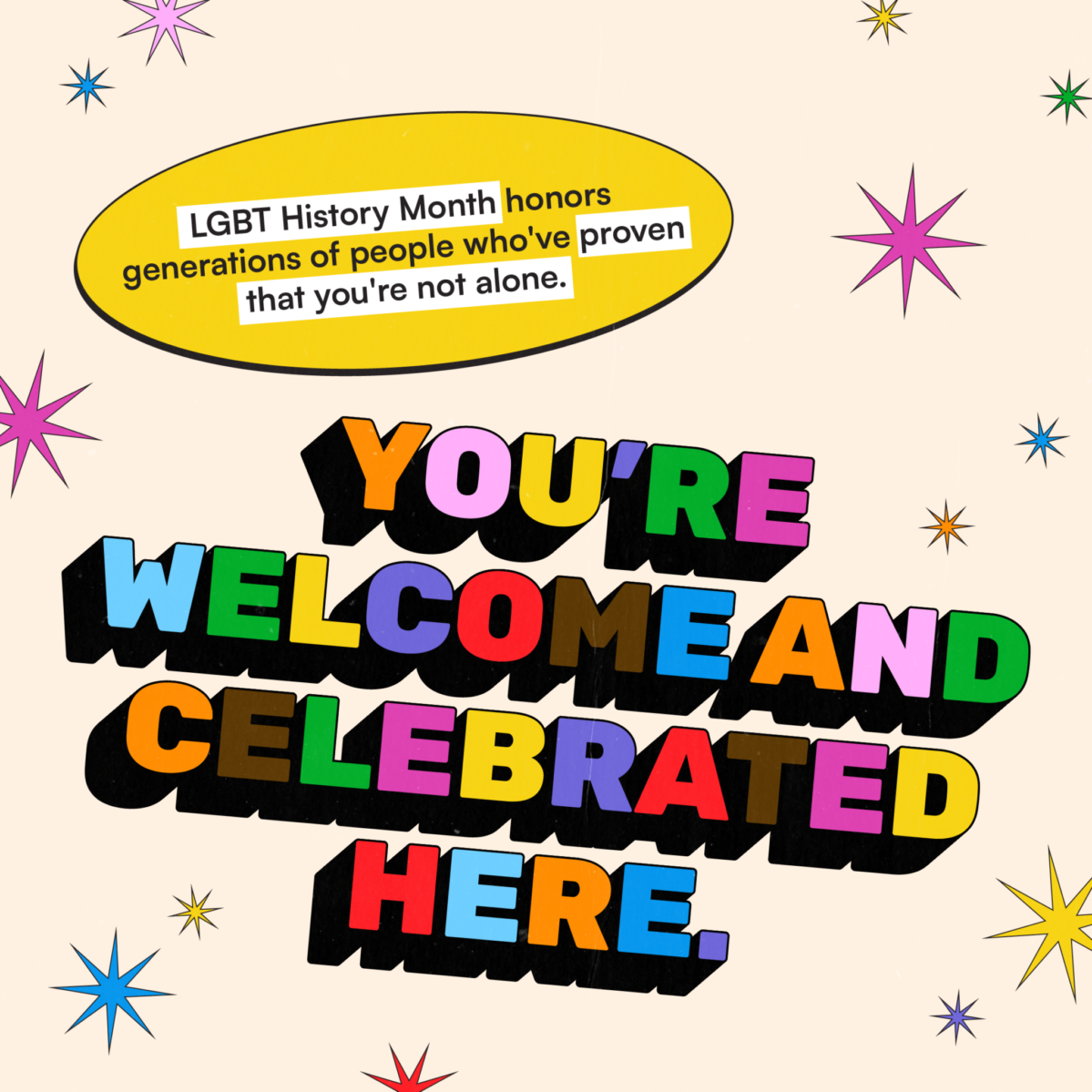
Individuals who identify as LGBT are between two and four times more likely to experience a mental health condition. Put another way: They are double to quadruple as likely to have a mental health condition. Many factors play into those rates, and stigma is one of them. We can do something about that in each conversation, each time we hear stereotypes, each time we see discrimination. You are never alone. You belong here. For mental health resources in our community check out: https://thewellbeingpartners.org/resources

October is National Depression and Mental Health Screening Month. Just as we screen for physical health conditions, it’s important to be proactive with signs of depression and other mental health conditions.
Depression is more than just feeling sad; it’s a diagnosable condition that impacts day-to-day function. It’s also treatable; 80 percent of people treated for depression get better.For mental health resources in our community check out: https://thewellbeingpartners.org/resources
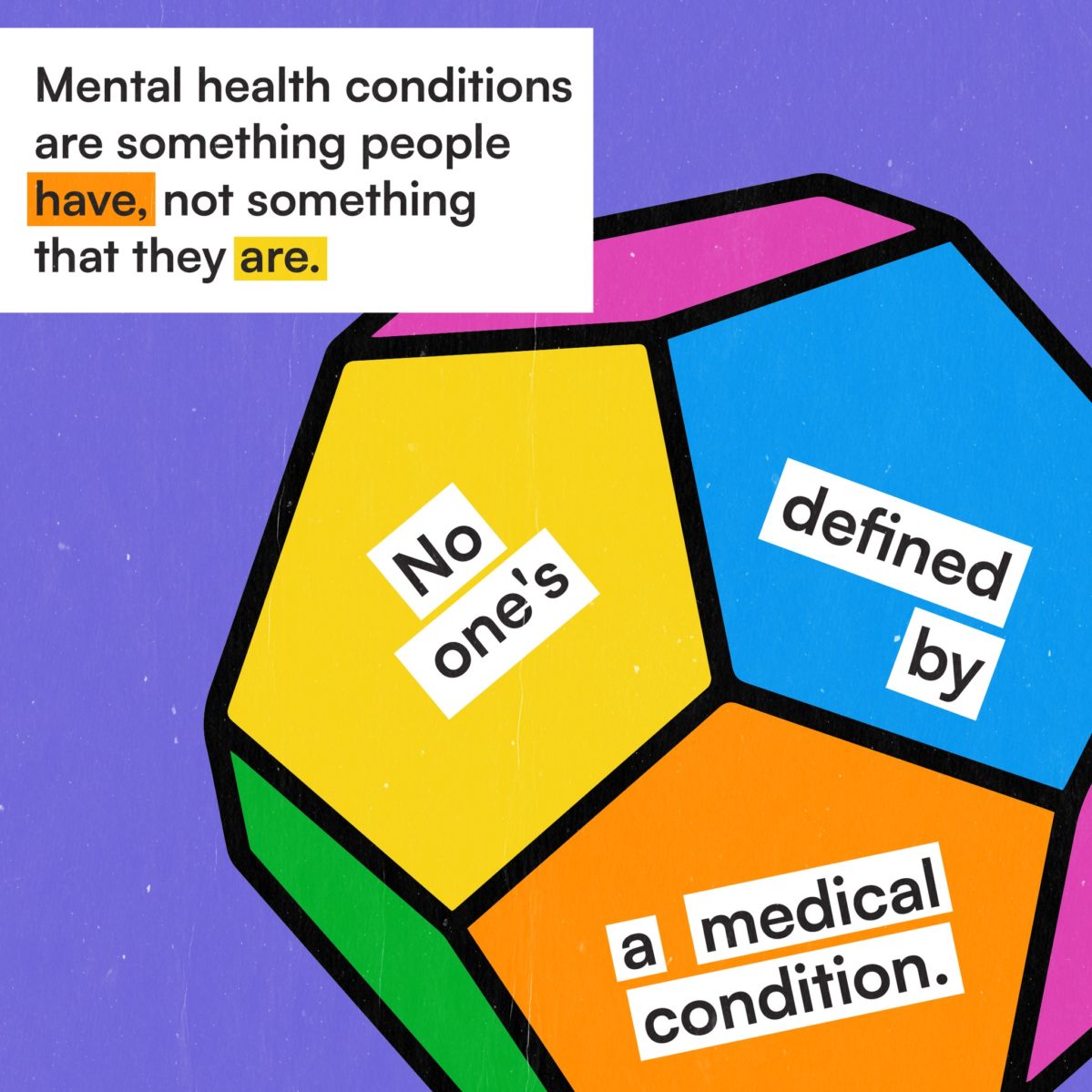
October 10: One of the reasons people with mental health conditions say they don’t seek help is fear of judgment from others. They worry about the stigma and how people will see them. This World Mental Health Day, make mental health a priority and help reduce the stigma around it by raising awareness. Read stories from people in our community that are so much more than their mental health condition by heading over to whatmakeus.com/us
November
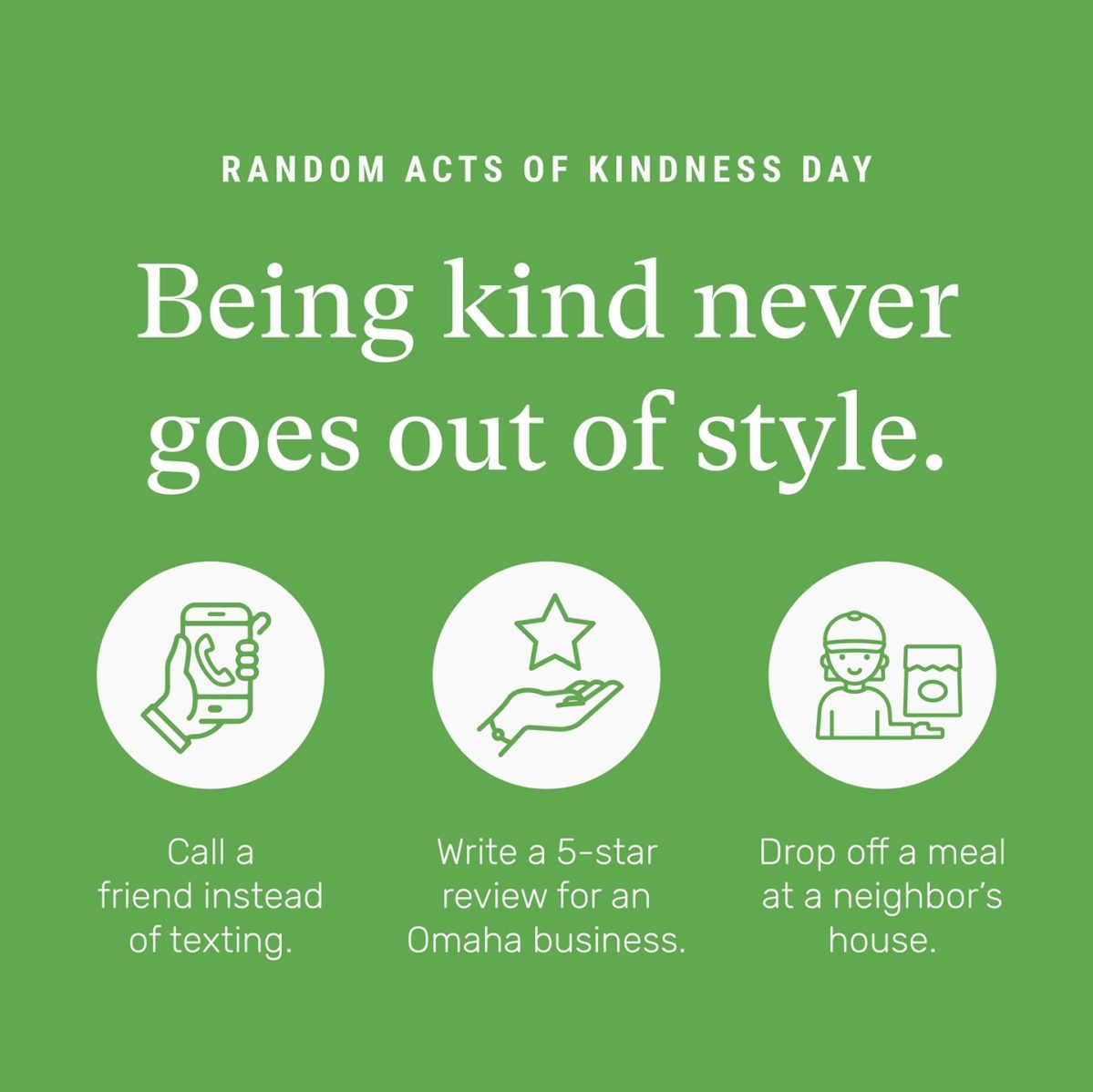
Nov 13: There’s no better time to start showing kindness to those around you than today, #WorldKindnessDay! In a world that can appear negative, spreading kindness could make someone’s day, week, or even year. World Kindness Day brings us together, reminding us to show compassion and understand each other better.
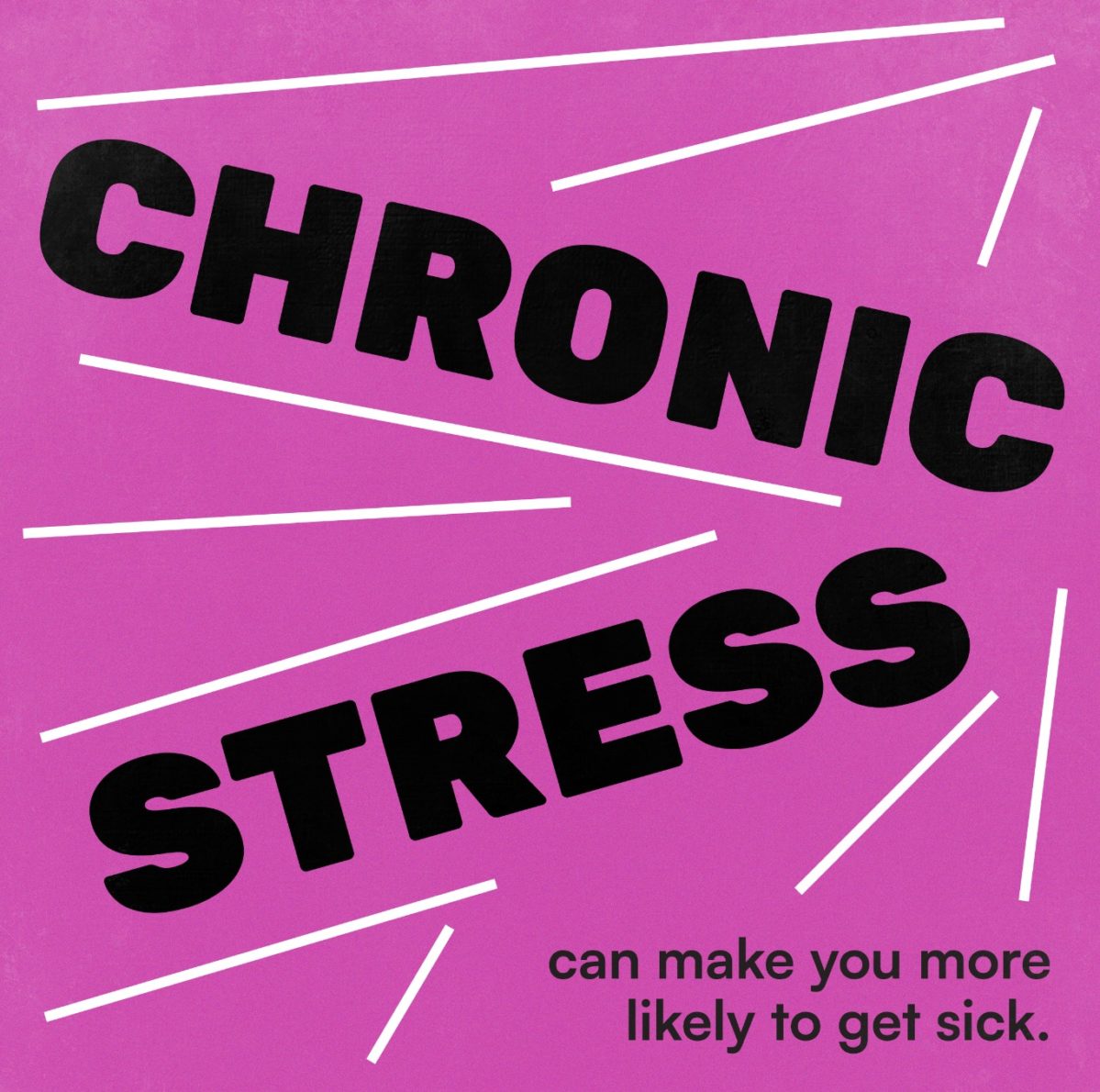
First Wed in Nov: Mental health conditions don’t just affect the mind. They can also cause physical symptoms. Chronic stress, for instance, can make you more prone to getting sick. This National Stress Awareness Day, prioritize your mental health by identifying stressors and reflect on ways you can manage them.
For mental health resources in our community check out: https://thewellbeingpartners.org/resources

Grief is hard, and goodbye is never easy. Often times we think about what could have been, would have been, or should have been. These feelings and thoughts are normal to have. Take your time; grief is not linear. Here are some tips for managing grief from the American Foundation for Suicide Prevention:
- There are different ways to say goodbye– explore what feels right for you.
- Remember, “The last sentence of the book doesn’t rewrite the whole story.”
- Even after loss, connections can deepen as we revisit cherished memories.
- You are not alone in your grief, support is available.
For grief resources in our community check out: https://thewellbeingpartners.org/resources
December

As the year ends, take the time to look at how far you have come and celebrate your victories (both big and small). You are learning and continuing to grow every day and that is something that you should always be proud of. You’ve got this!

The days may be short, but they certainly feel long when we’re stuck at home. Avoid cabin fever by getting outside, even for just a few minutes each day. Fresh air, activity, and a change of scenery are good for your well-being.
Optional additional language: For more self-care resources visit:
The holidays can be a hard time for many people. Reach out to your friends and family and check in on them. It’s as easy as sending a text or grabbing a cup of cocoa together. Knowing that you’re not alone can greatly improve your mental health.
Optional additional language: For additional mental health resources check out:
Mental Health During Transitions
See Spanish versions on Recursos en Español page.
Change can bring uncertainty. Use these messages to support your community in times of transition.
Use the suggested captions below to accompany the images. Don’t forget to tag @WhatMakesUsMW when posting so we can help amplify your messages.
Mental Health During Transitions:
Change may be a constant, but that doesn’t make it any easier to deal with. It takes 30 to 60 days to make a new habit stick or to break an old one, so give yourself time and patience as you navigate the twists and turns of the pandemic.
Mental Health During Transitions:
If you’re heading back to an office or starting to socialize in public more, you may be feeling a bit uneasy — and you aren’t alone.
It’s okay to be worried about adjusting to a different work environment, so lean on your friends, family members, and coworkers because they’re likely feeling similarly.
Eating Disorders:
There are a lot of myths around eating disorders, in part because of how they’re portrayed in films and TV shows.
The truth is that anyone can have an eating disorder, regardless of age, skin color, or body size. No one chooses to have a medical condition — and that’s what eating disorders are. But help is out there for you or a loved one, and often the first step to admitting you need help is opening up to someone you trust.


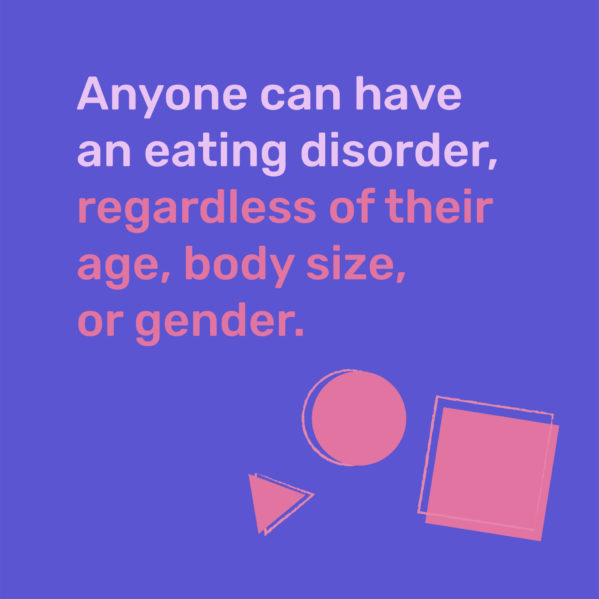
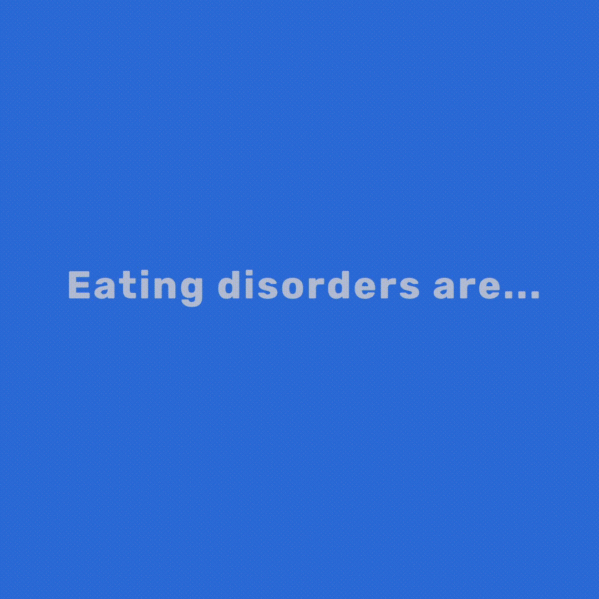
Talking about Mental Health with your Children & Family
Breaking stigma around mental health can start at home! Use the images below to encourage families to start conversations around mental health with their loved ones.
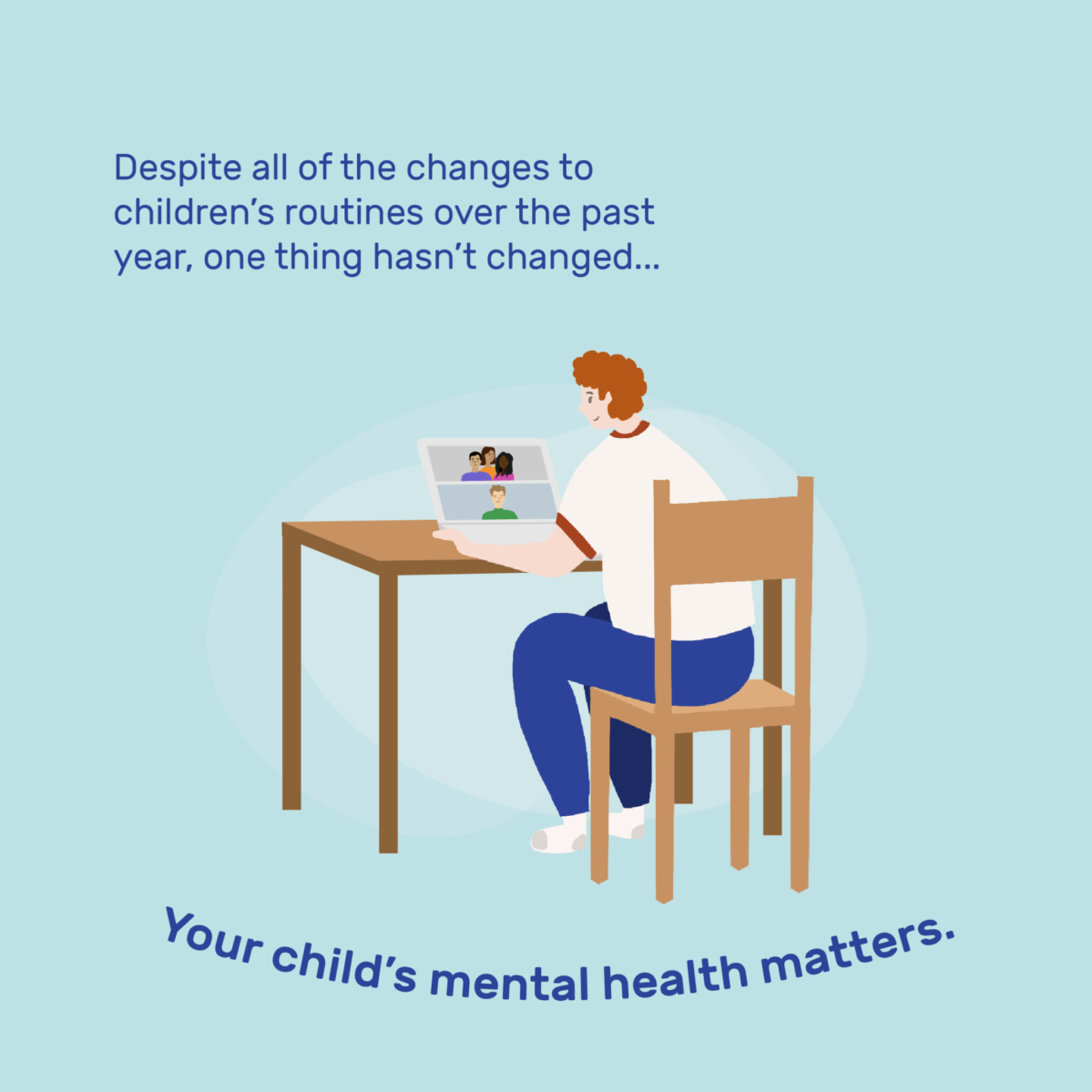
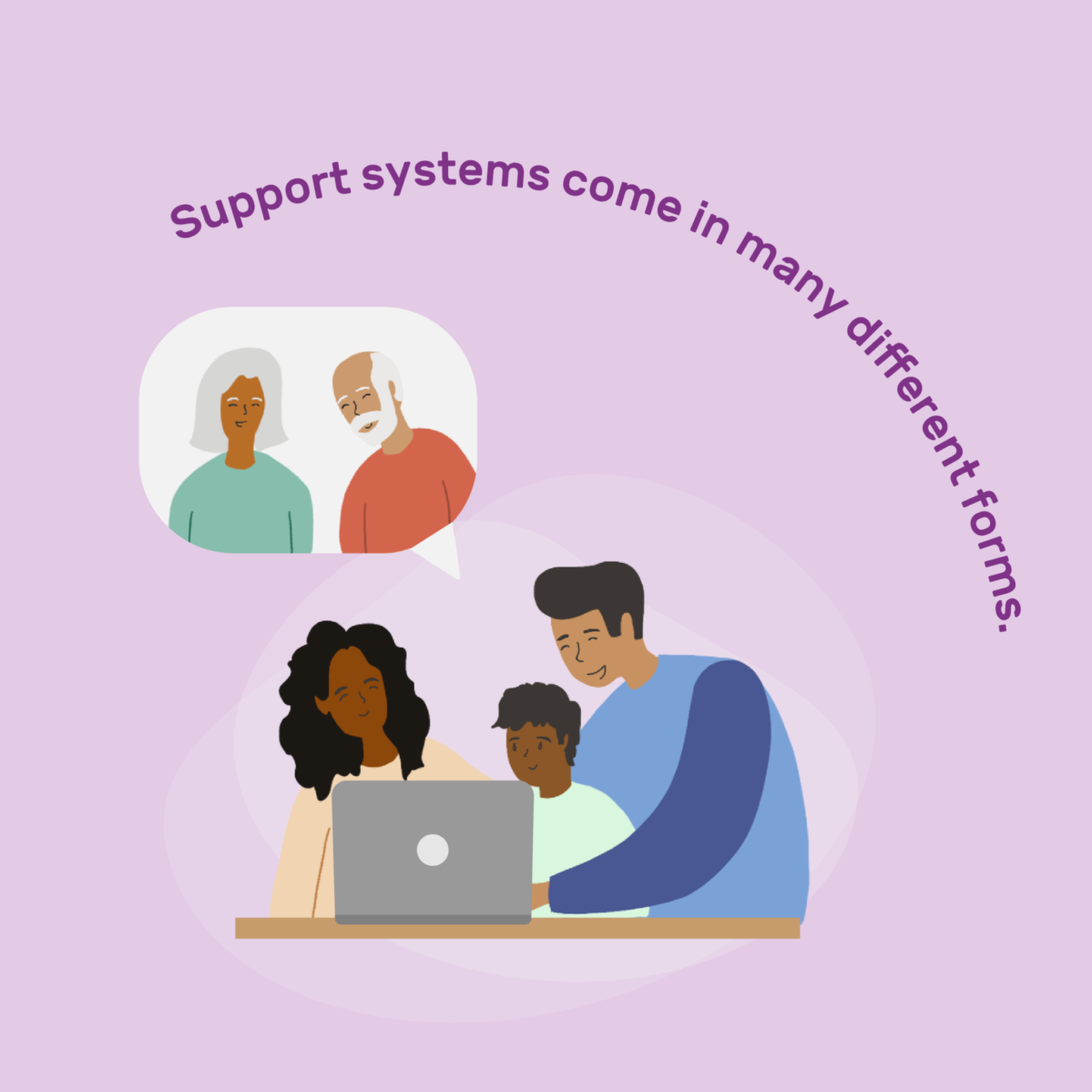

National and Local Mental Health Resources
Use the images below to spread the word about these free mental health services available to all.
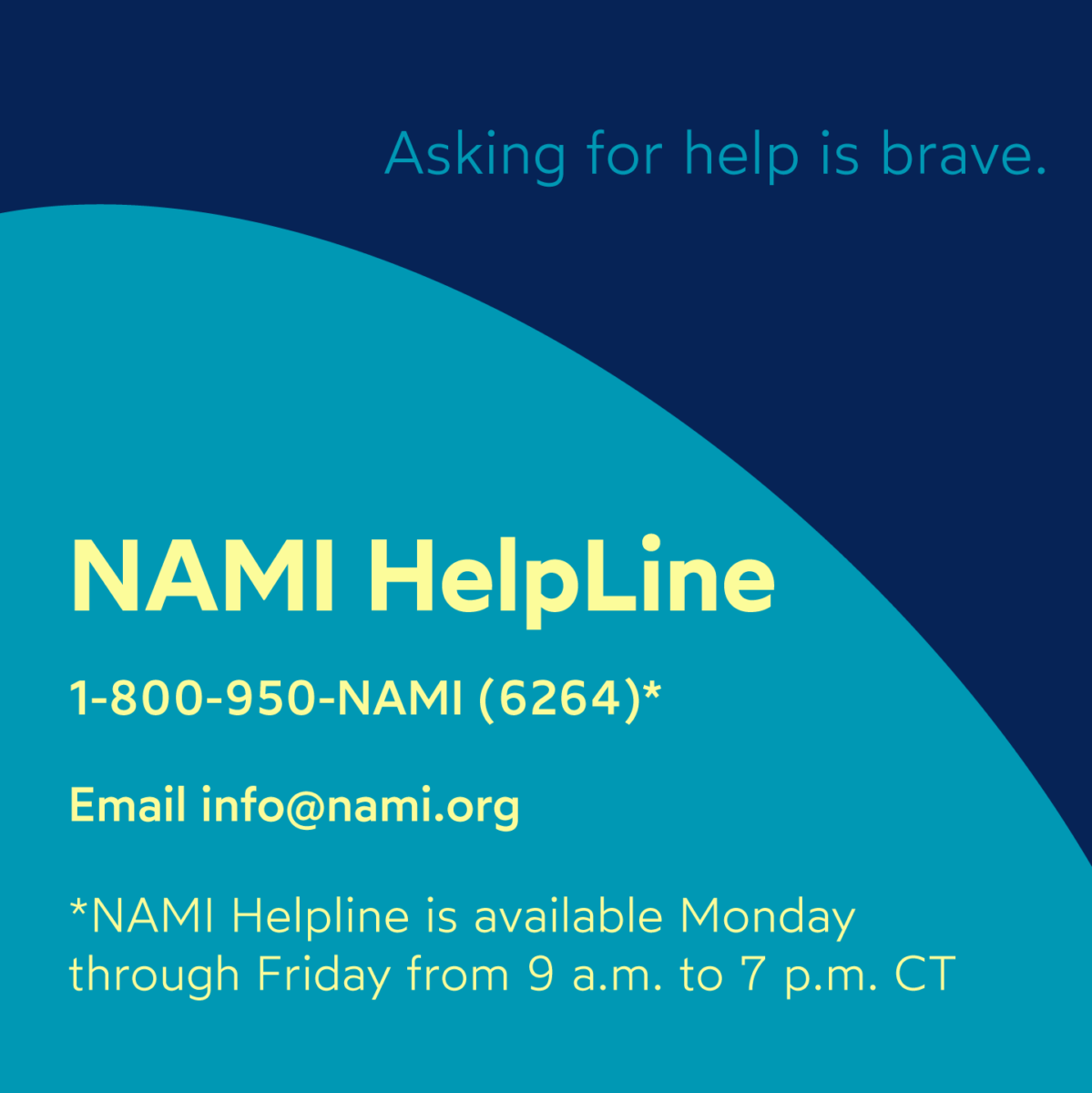
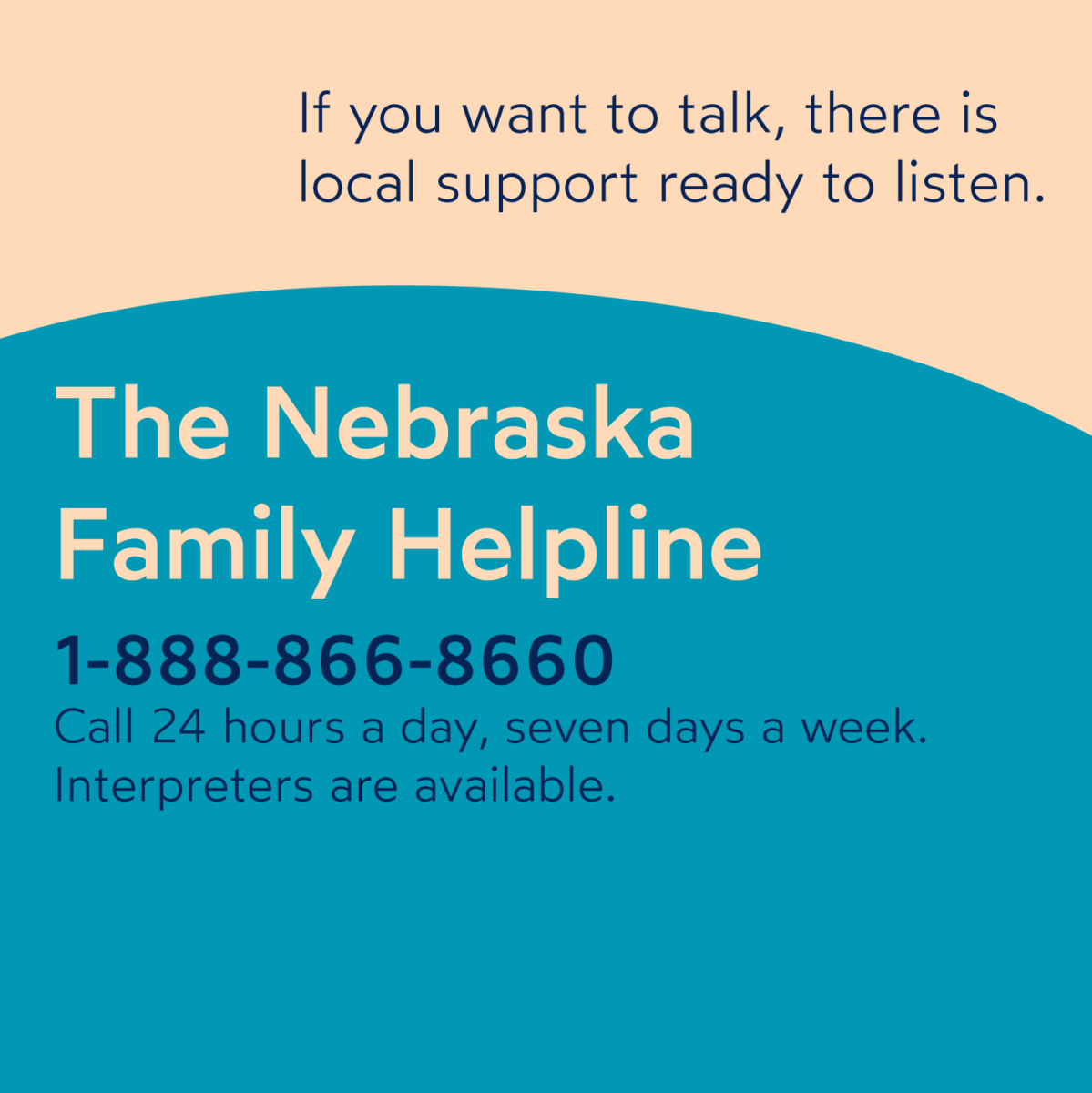
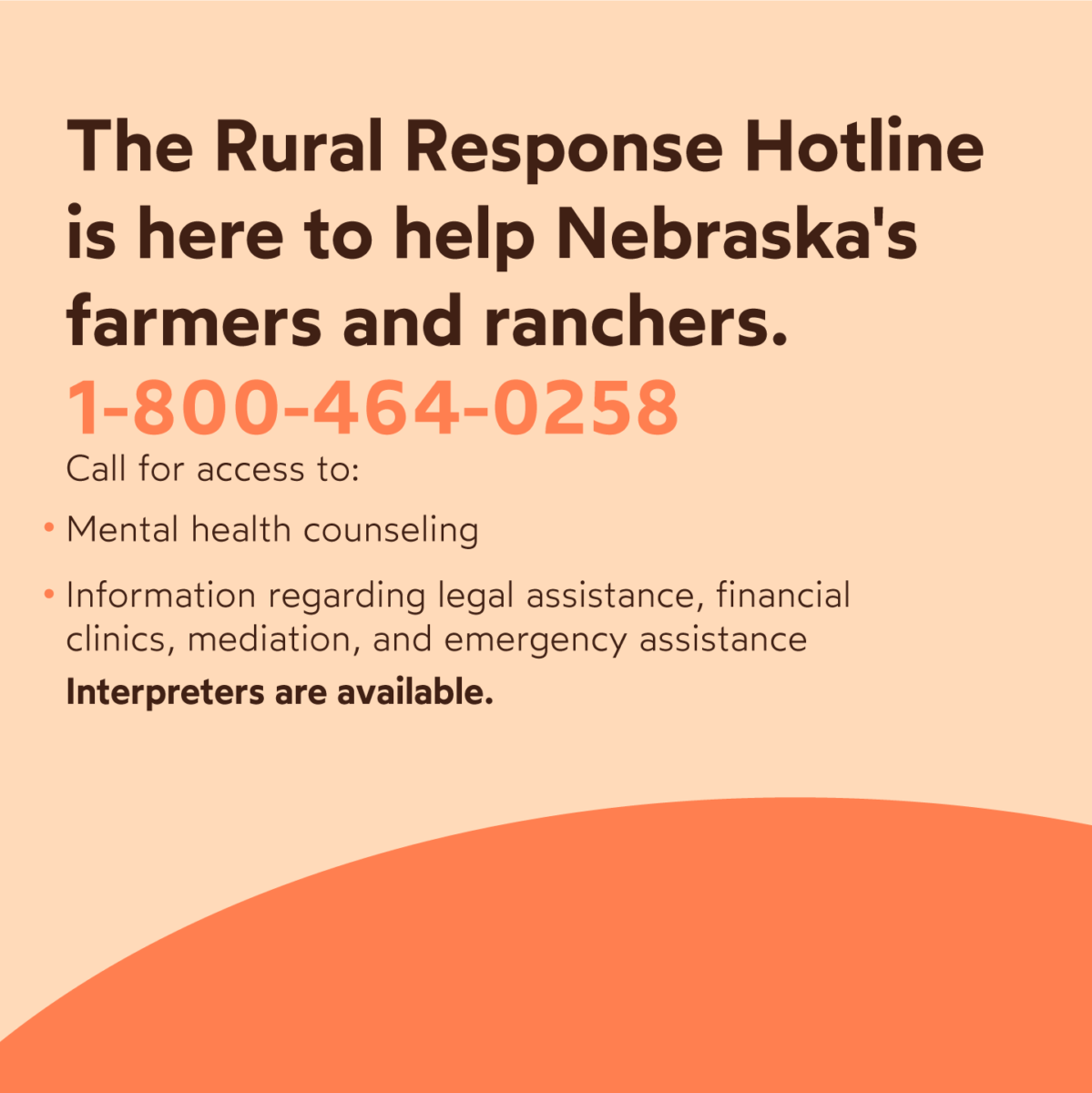
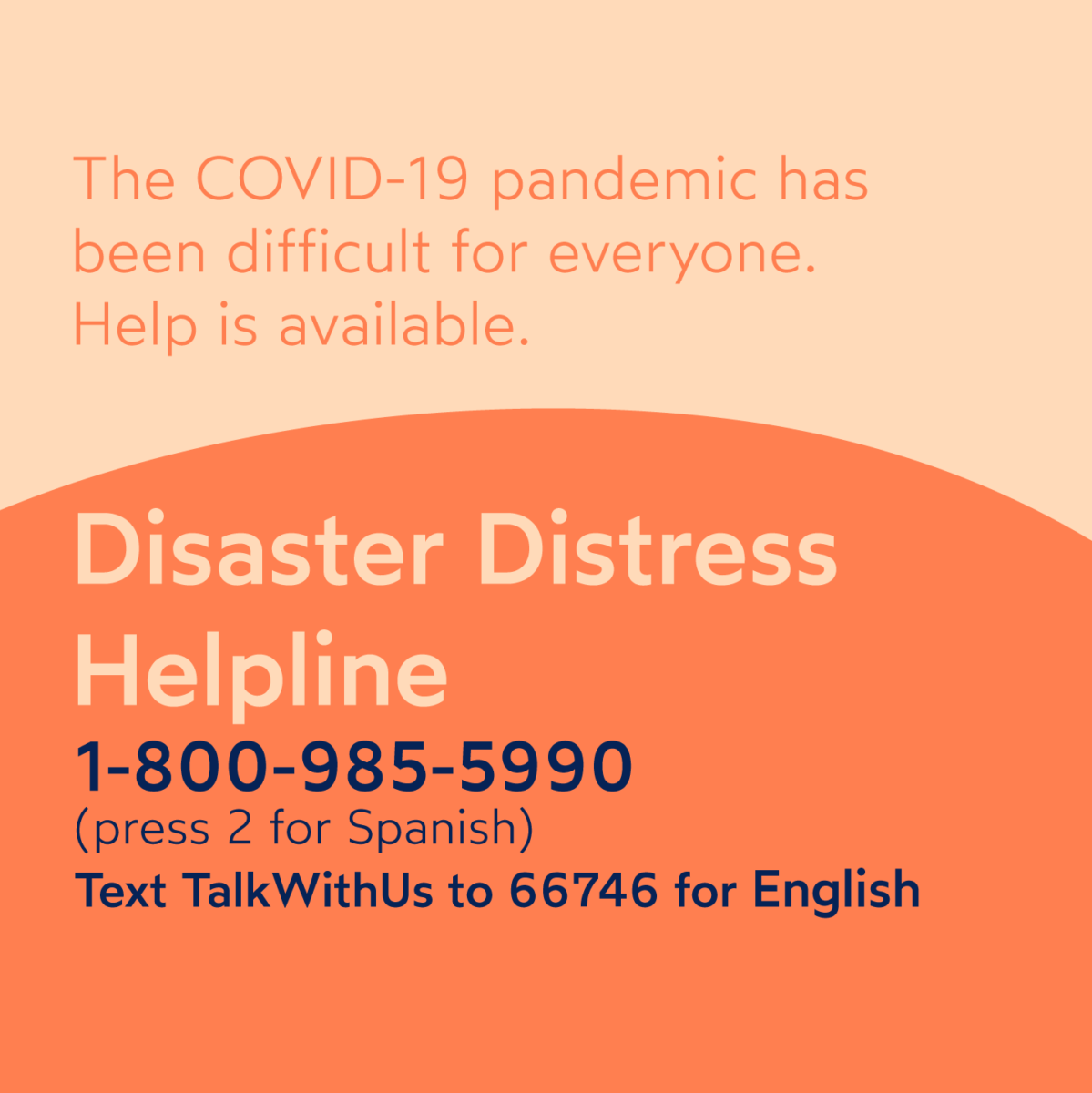
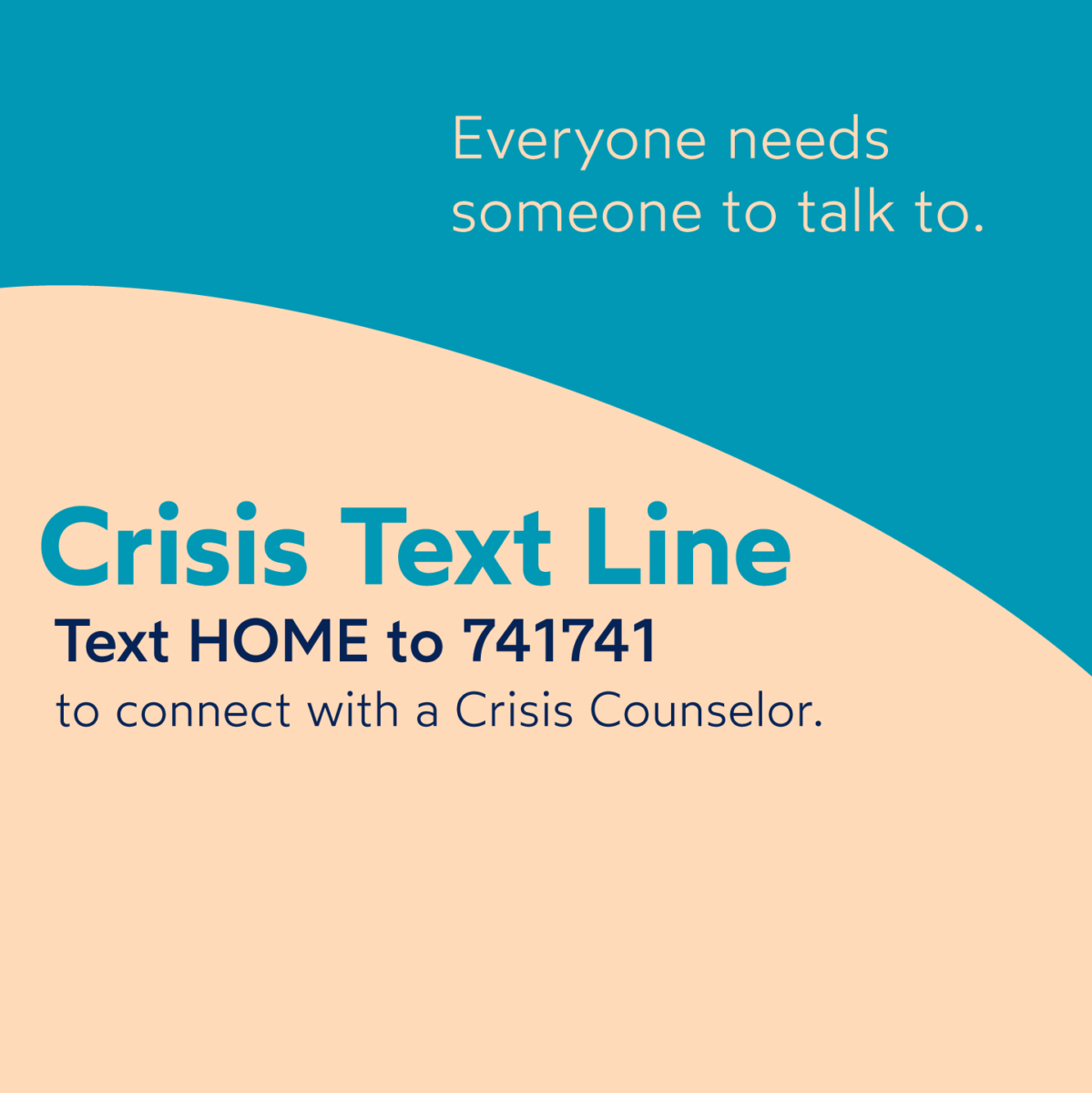
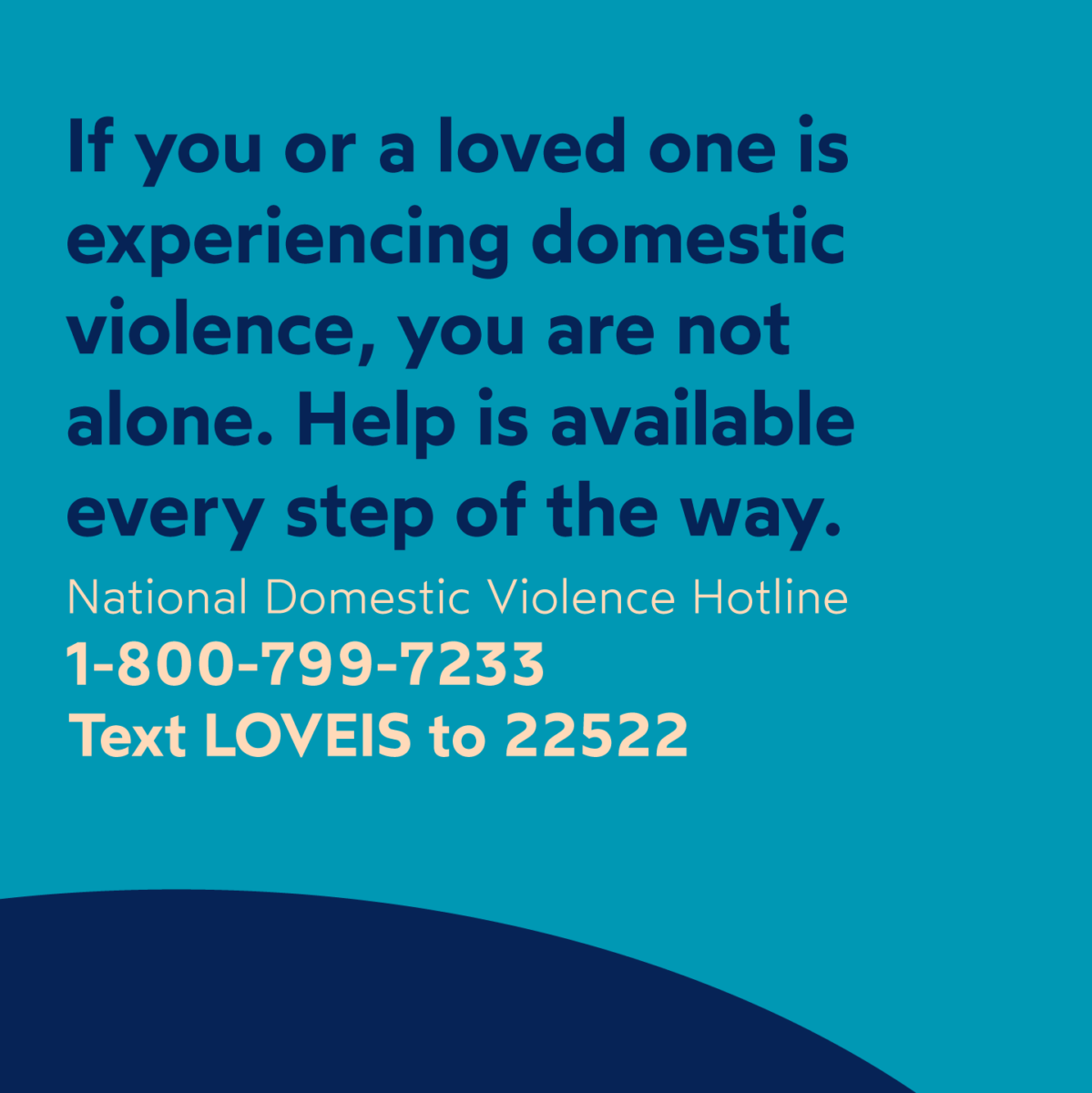
Mental Health in the Black Community
See Spanish versions on Recursos en Español page.
Mix and match these suggested captions with the images below.
Black History Month:
When it comes to mental health, the Black community experiences the double burden of stigma because of discrimination against their race and against their mental health condition. As we work to end the stigma around mental health, we must acknowledge those who experience it the most; everyone deserves fair and equal respect.
Black History Month:
Just weeks after we inaugurated the first Black and first Asian American Vice President of the United States, we celebrate Black History Month. This month is about the Black community’s significant contributions to art, music, culture, and society.
Black History Month is also a time to address the systemic racism that affects real people’s lives – from the ability to access mental health services to physical safety. This month may only last 28 days, but the lessons and learnings should carry on all 365 days of the year.
Black History Month:
Black people are 20% more likely to experience a severe mental health condition in their lifetime, but they’re also less likely to receive treatment. Mental health stigma and racial discrimination make it difficult to access treatment, but community support can help.
Black History Month:
Black History Month is a time to honor the extraordinary contributions of Black thinkers, leaders, and doers. It’s a time to pay tribute to these scientists, artists, and writers. Black people have helped advance society while also facing discrimination, bigotry, and hate. As Maya Angelou said, “hate, it has caused a lot of problems in the world, but has not solved one yet.” We can’t end the stigma around mental health without also working to end systemic racism.


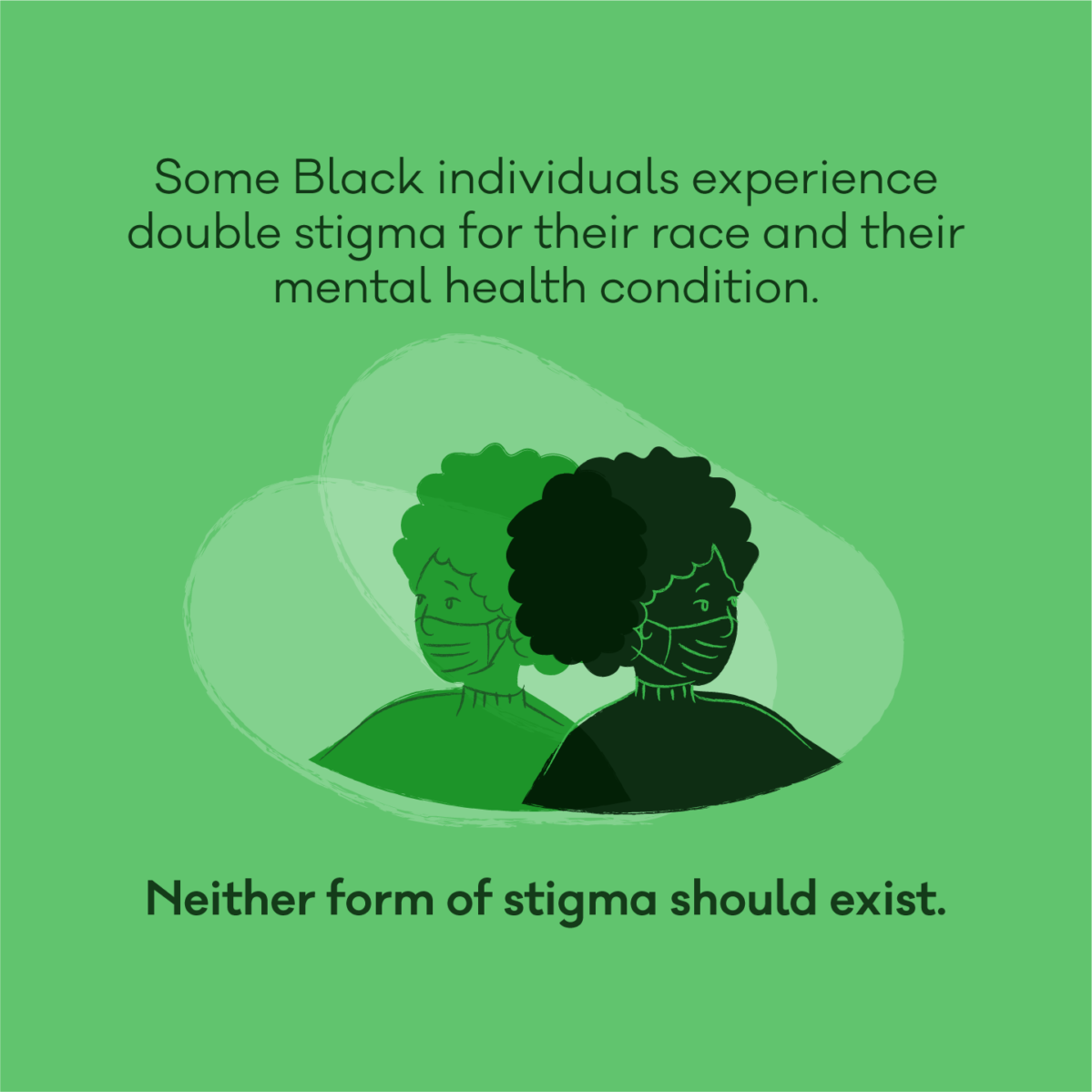
Recognizing Stigmatizing Language
See Spanish versions on Recursos en Español page. Email us to have your logo added to the fact sheet!
Mix and match these suggested captions with the images below.
Stigmatizing Language:
Contrary to the old adage, words actually can hurt as much as sticks and stones. When we use stigmatizing language, we spread the idea that people with mental health conditions are somehow different when they’re not. Hear stories from people that are so much more than their mental health condition @whatmakesumw.
Stigmatizing Language:
The weather isn’t bipolar. People’s body shape doesn’t make them anorexic. Attention to detail isn’t OCD. Mental health conditions are real, but stigmatizing language can diminish what they really mean and make it harder for someone who’s struggling to get help. Reduce stigma by being aware of your language. @whatmakesusmw.
Stigmatizing Language:
We often use stigmatizing words without realizing how harmful they might be. Words like “psycho” and “crazy” have become part of our regular vocabulary, so take stock of how often you use these phrases – it’s likely more than you think. Make a conscious effort to use language that respects all people. @whatmakesusmw
Stigmatizing Language:
Millions of people have mental health conditions, but not a single person is defined by that condition. They also have friendships, relationships, interests, hobbies, and passions – these define someone much more than a diagnosis. Hear stories from people that are so much more than their mental health conditions at @whatmakesusmw.


Encouragement for the New Year
Mix and match the images and captions below to share messages of encouragement as we kick off the a new year!
On working from home:
Our houses have turned into offices, schools, gyms, and restaurants. Prioritize your well-being by setting boundaries and separating work from home.
Working from home in the middle of a pandemic can add extra stress to an already busy time of year. Talk with your co-workers about how you’re doing and remember that a stigma-free workplace is actually healthier and more productive.
On New Year’s resolutions:
It takes 30 to 60 days to make a new habit stick or to break an old one. Start with small goals and remember to strive for progress, not perfection.
January can feel like a sprint after some time away from your regular routine. Be mindful and stay in the present moment this month.
On Exercising:
Remember when gym class was the highlight of the day? Bring the fun back to movement by finding something you actually enjoy – your body and mind will thank you.
Exercise: From strength training to Zumba, there’s an activity for everyone (and you can do it from your very own living room!). Finding a workout routine that you enjoy will make it feel less like work and more like fun.
On winter blues:
The days may be short, but they certainly feel long when we’re stuck at home. Beat the cabin fever by getting out even for just a few minutes each day. Fresh air, activity, and a change of scenery are good for your well-being.
January can be a difficult time for mental health between lack of daylight and dreary weather. With an ongoing pandemic, prioritizing mental health is crucial. Take time to de-stress with your favorite activities – whatever they are.
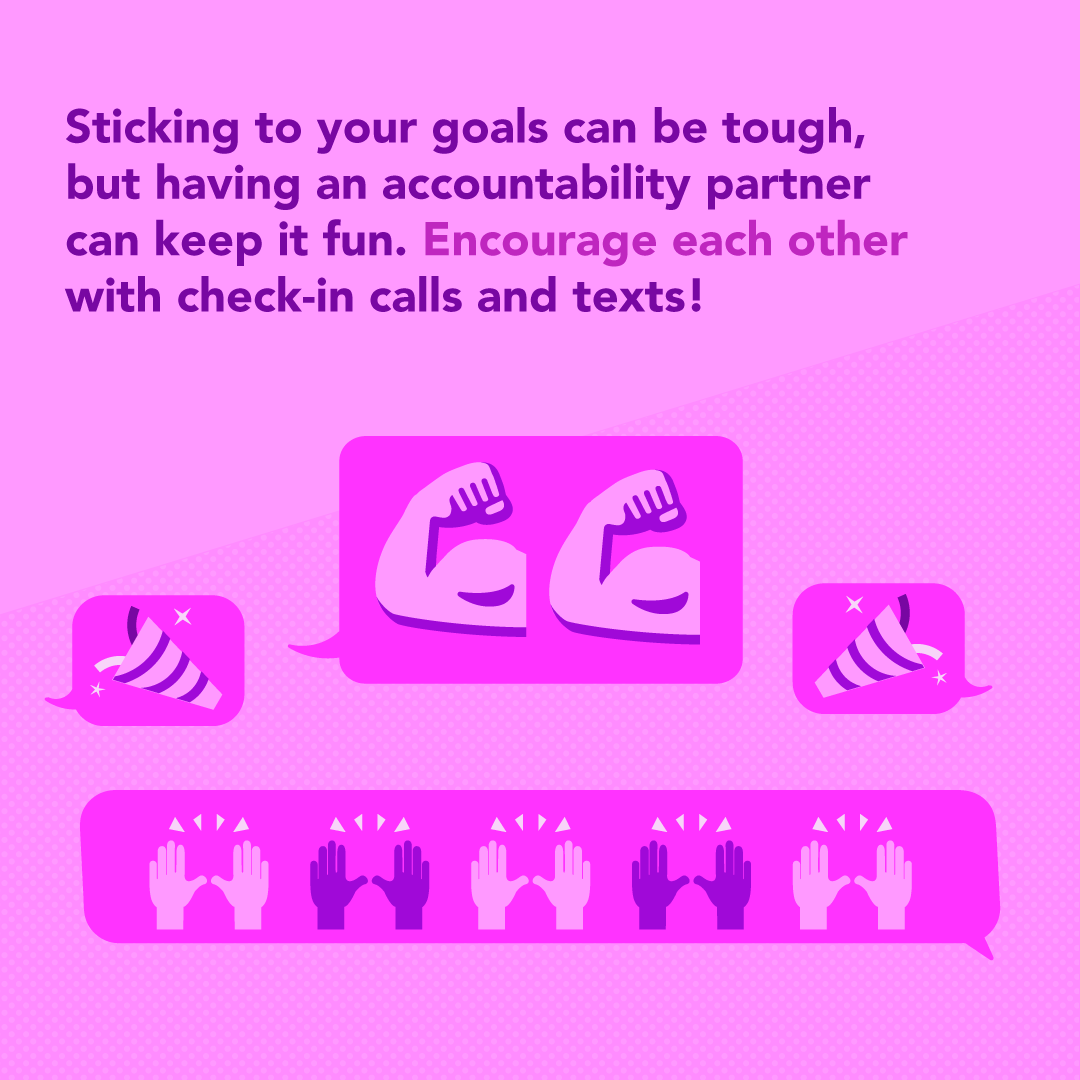
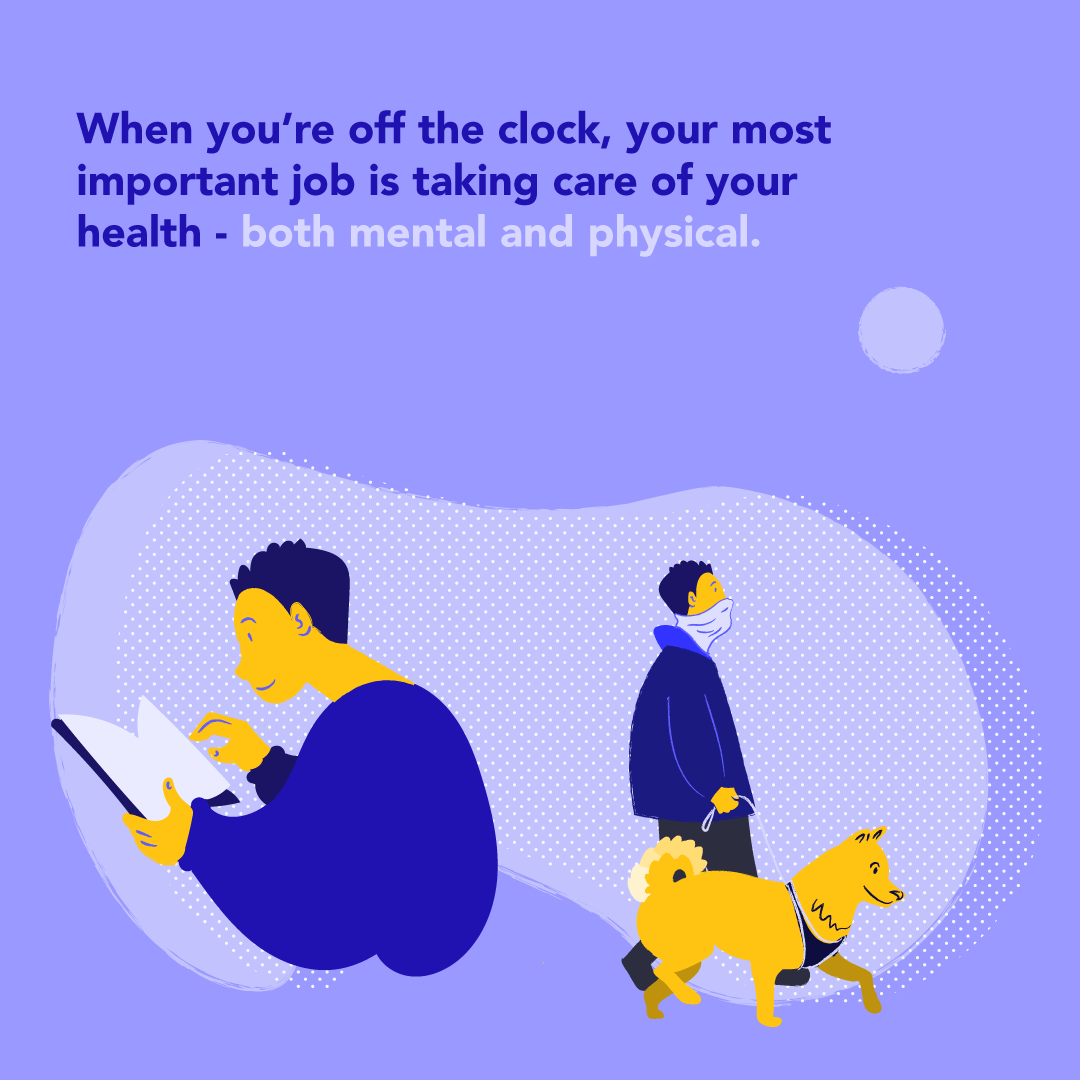
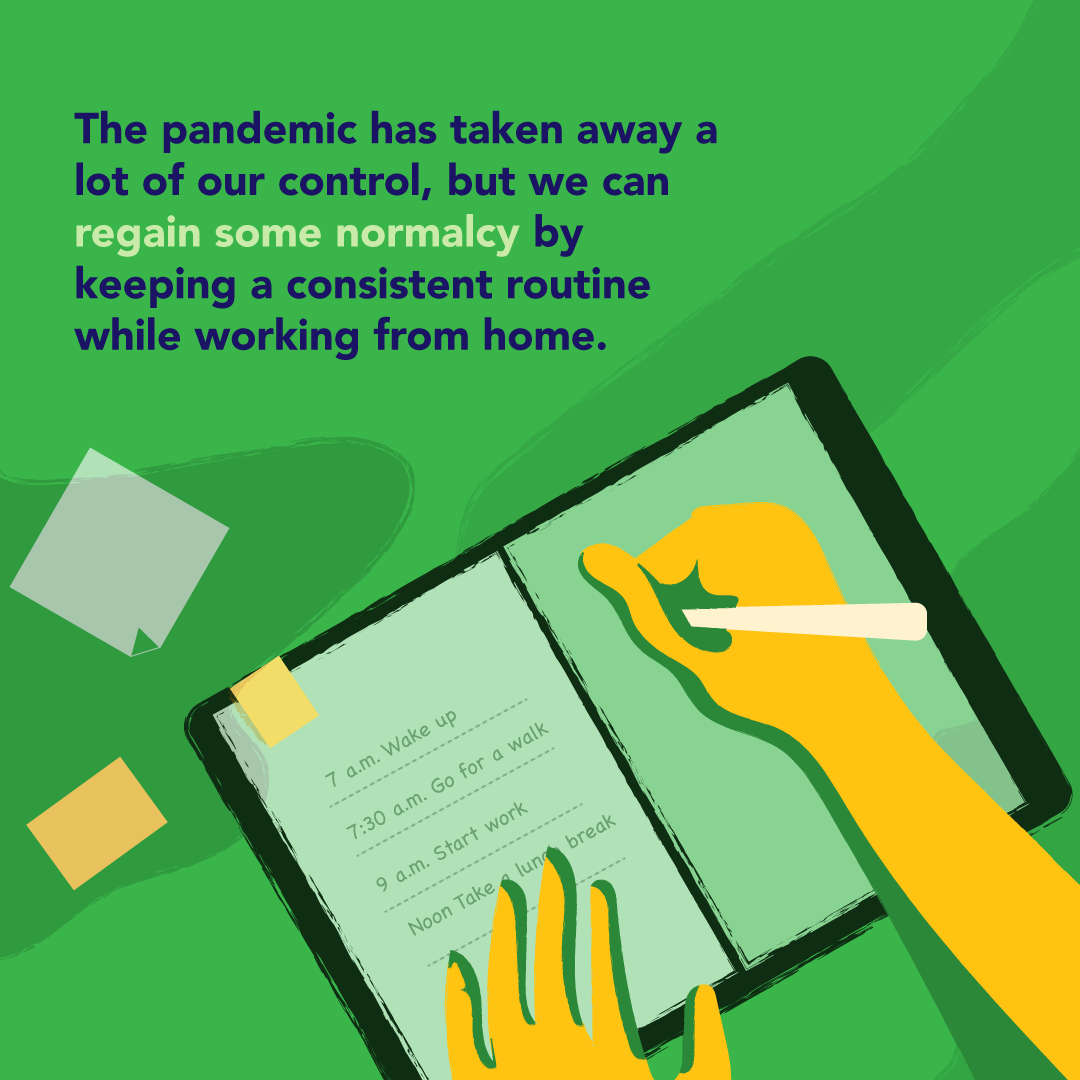
Starting the Conversation Around Mental Health
Mental Health and the Holidays
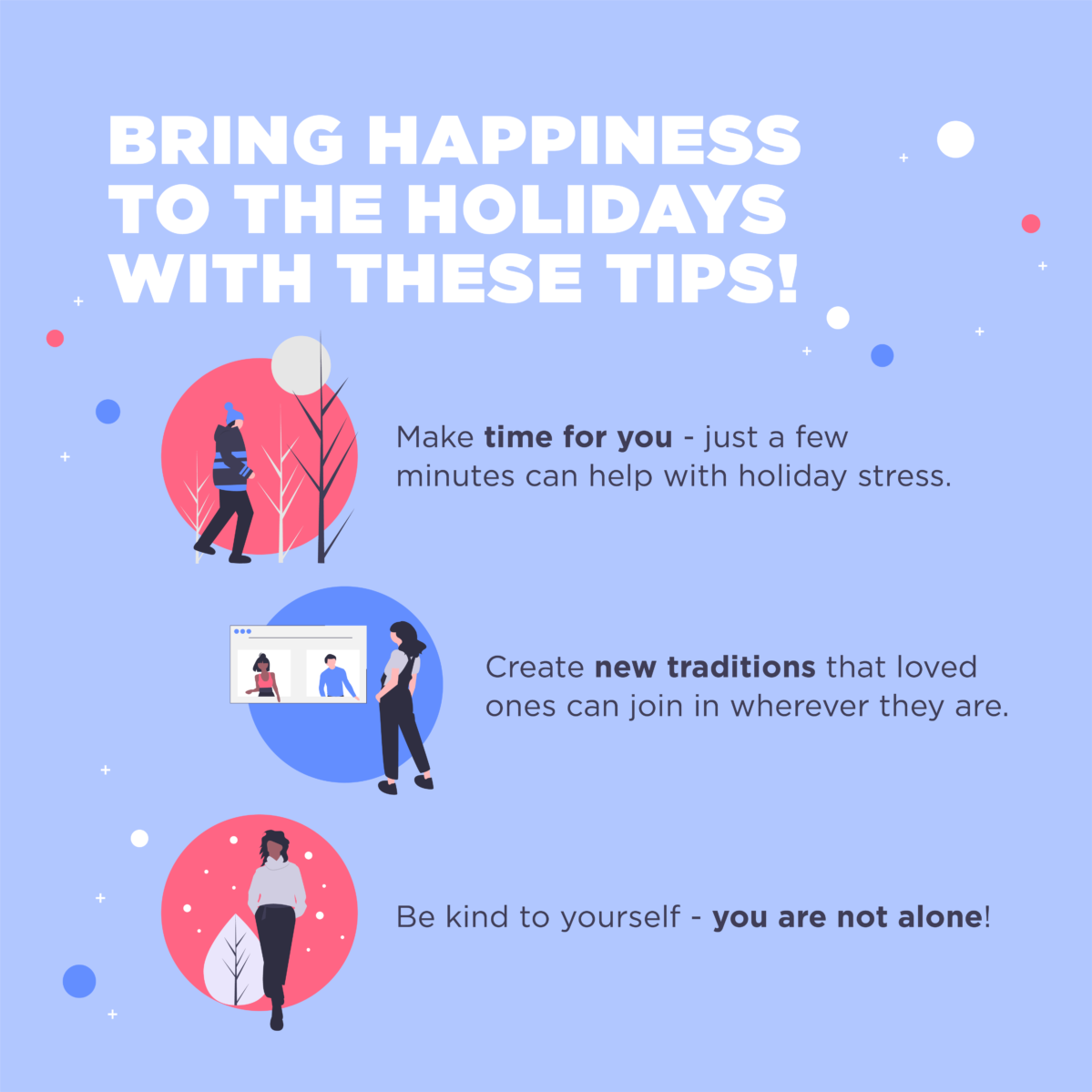
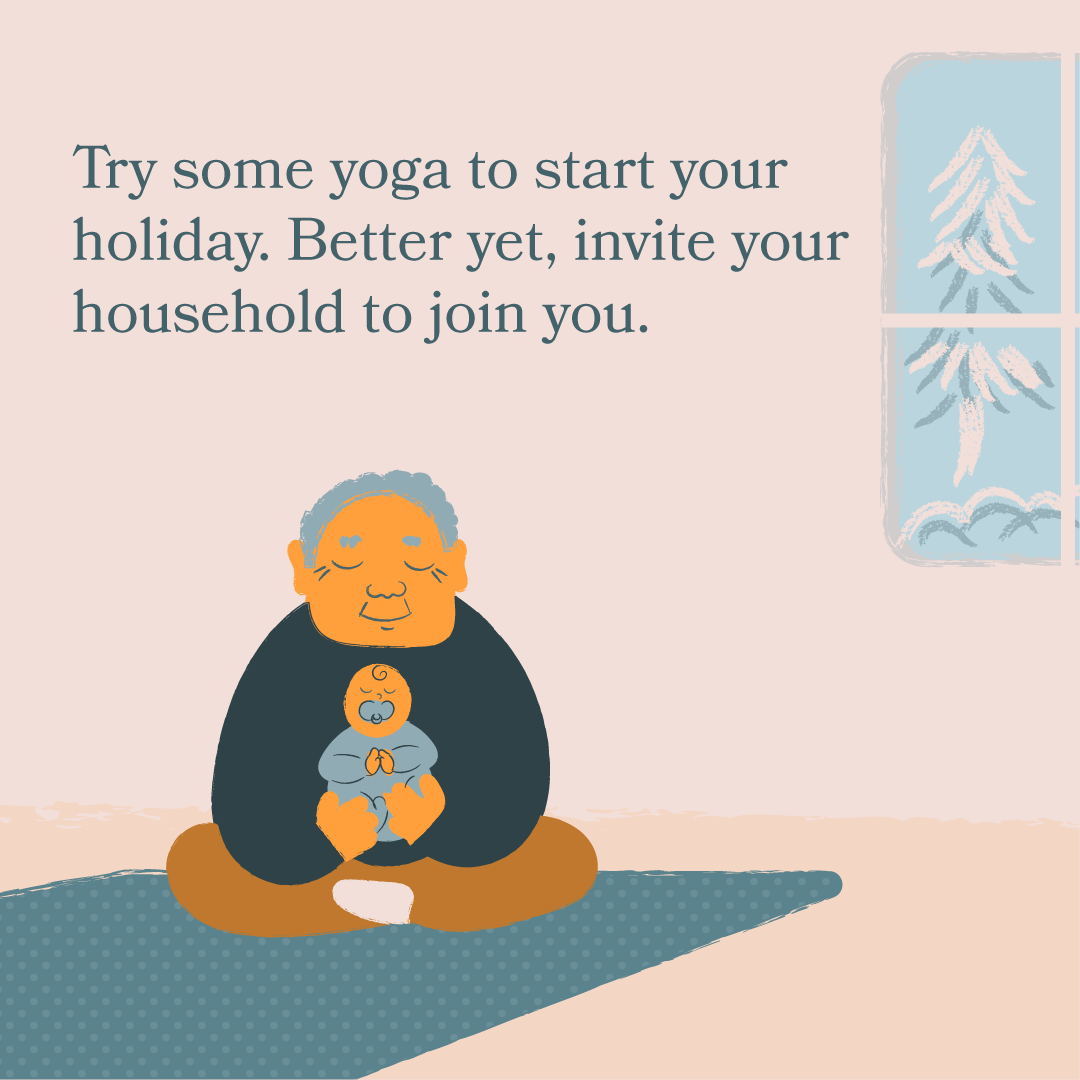
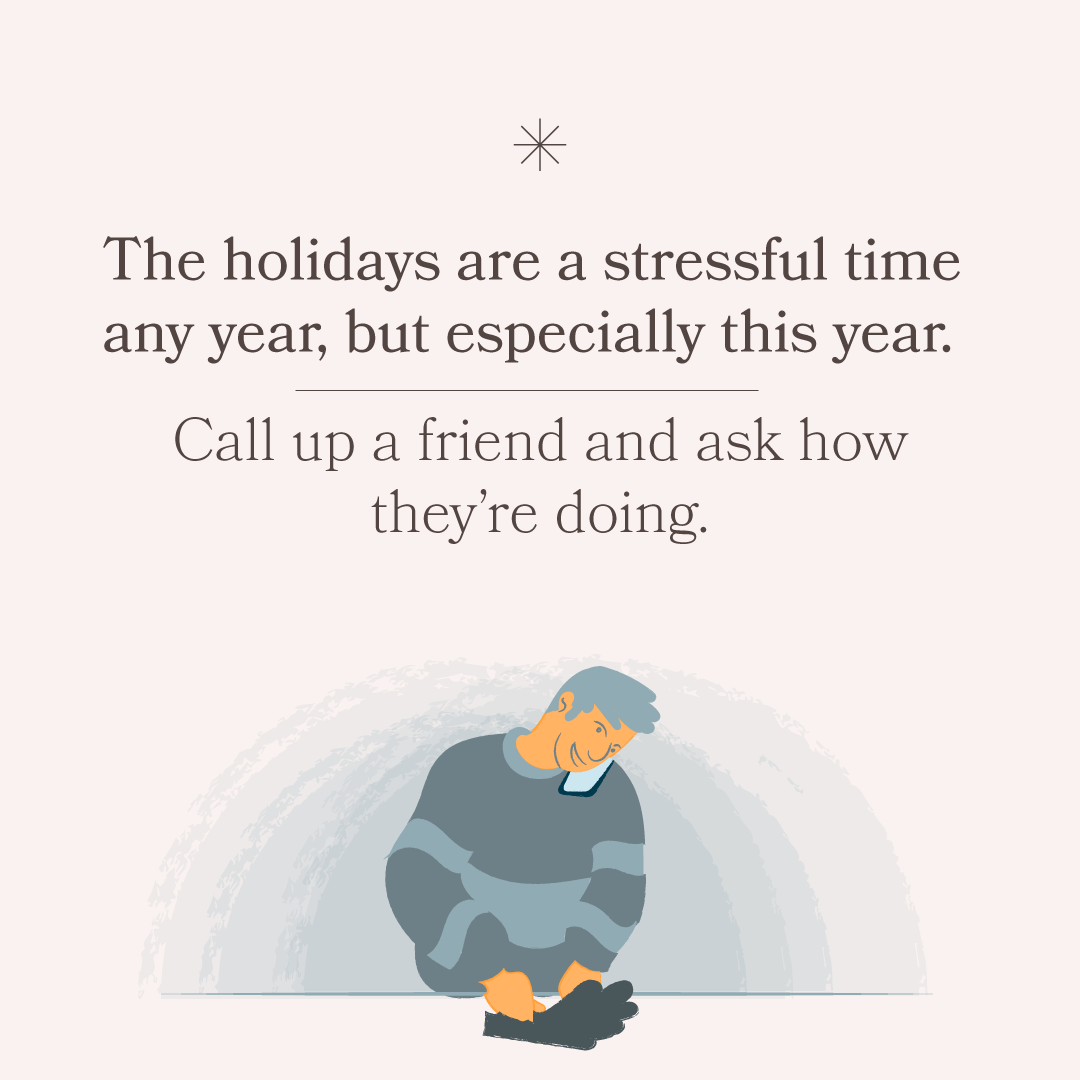

Financial Stress and Mental Health




Stop Stigma in Your Community
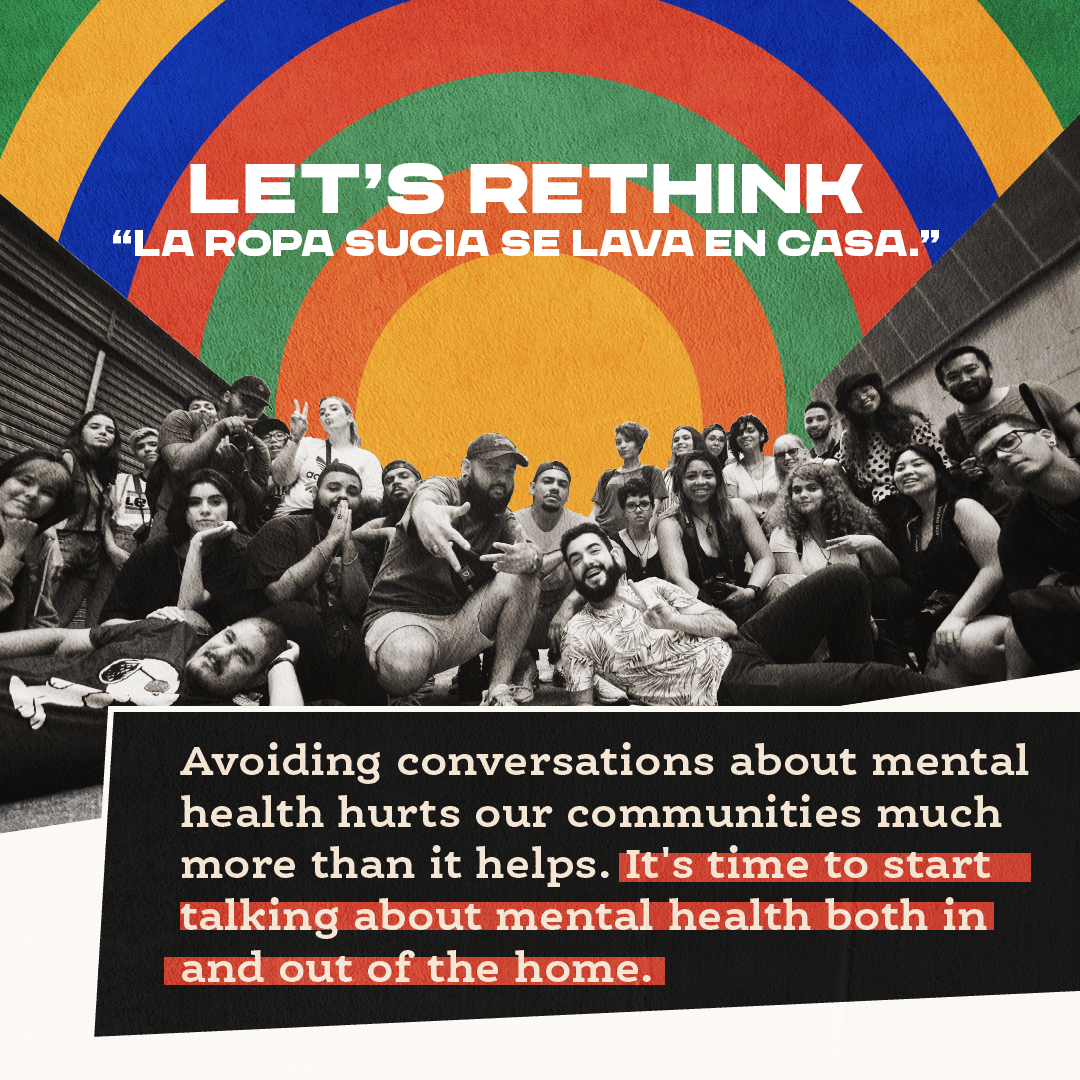
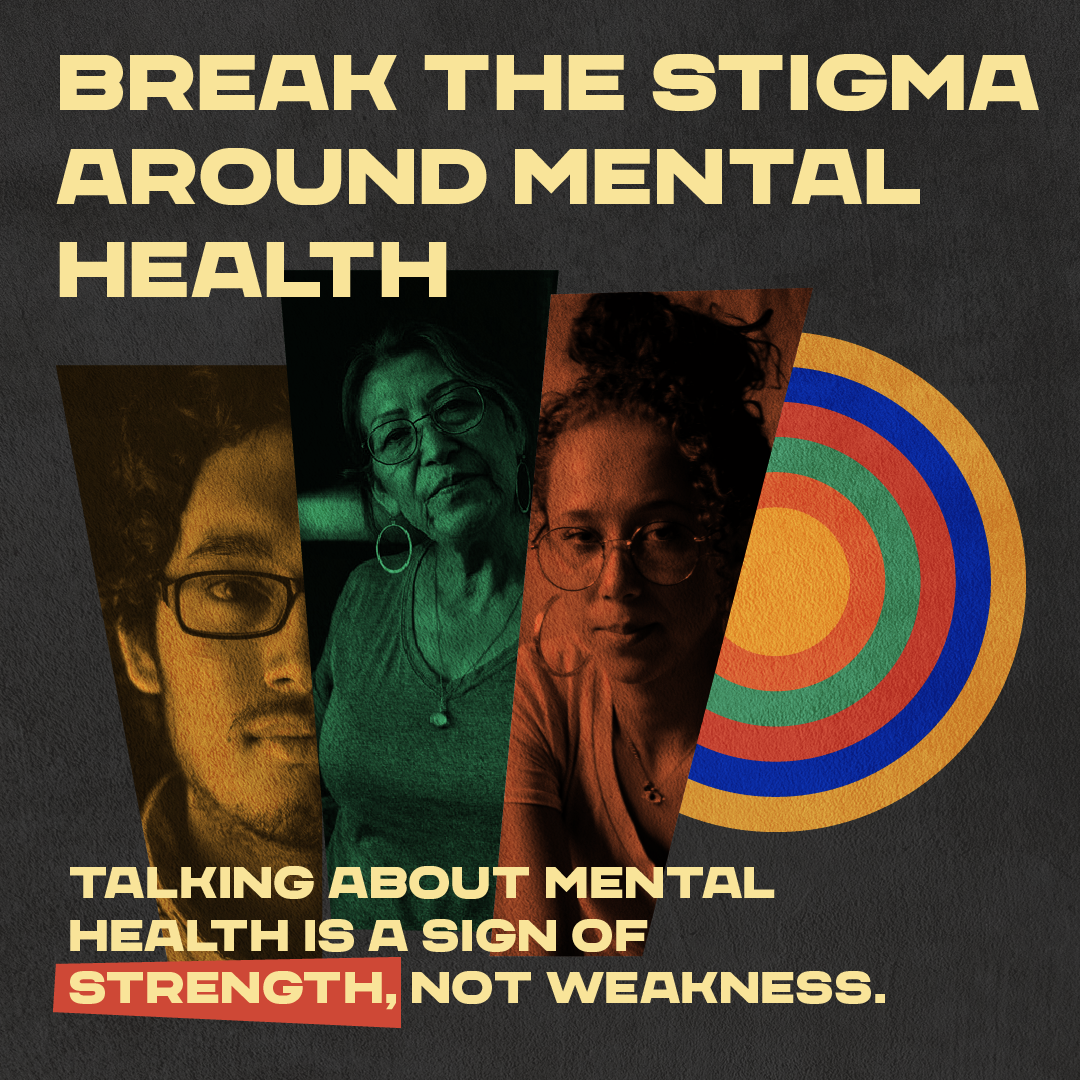
Physical Activity and Mental Health
